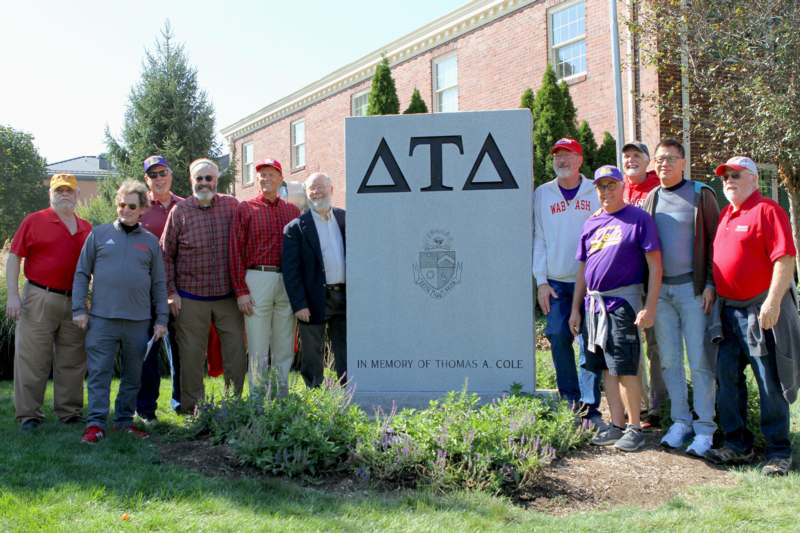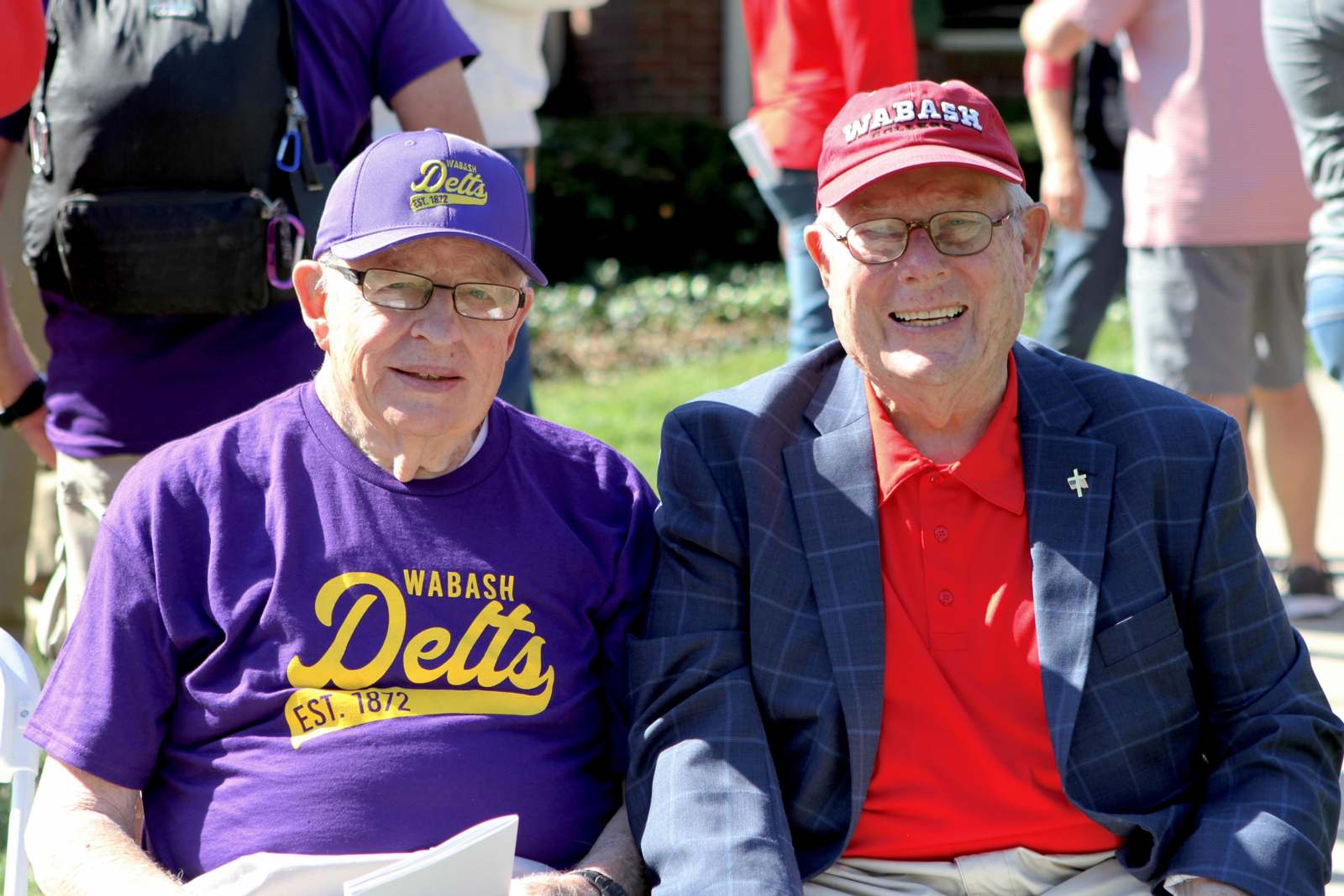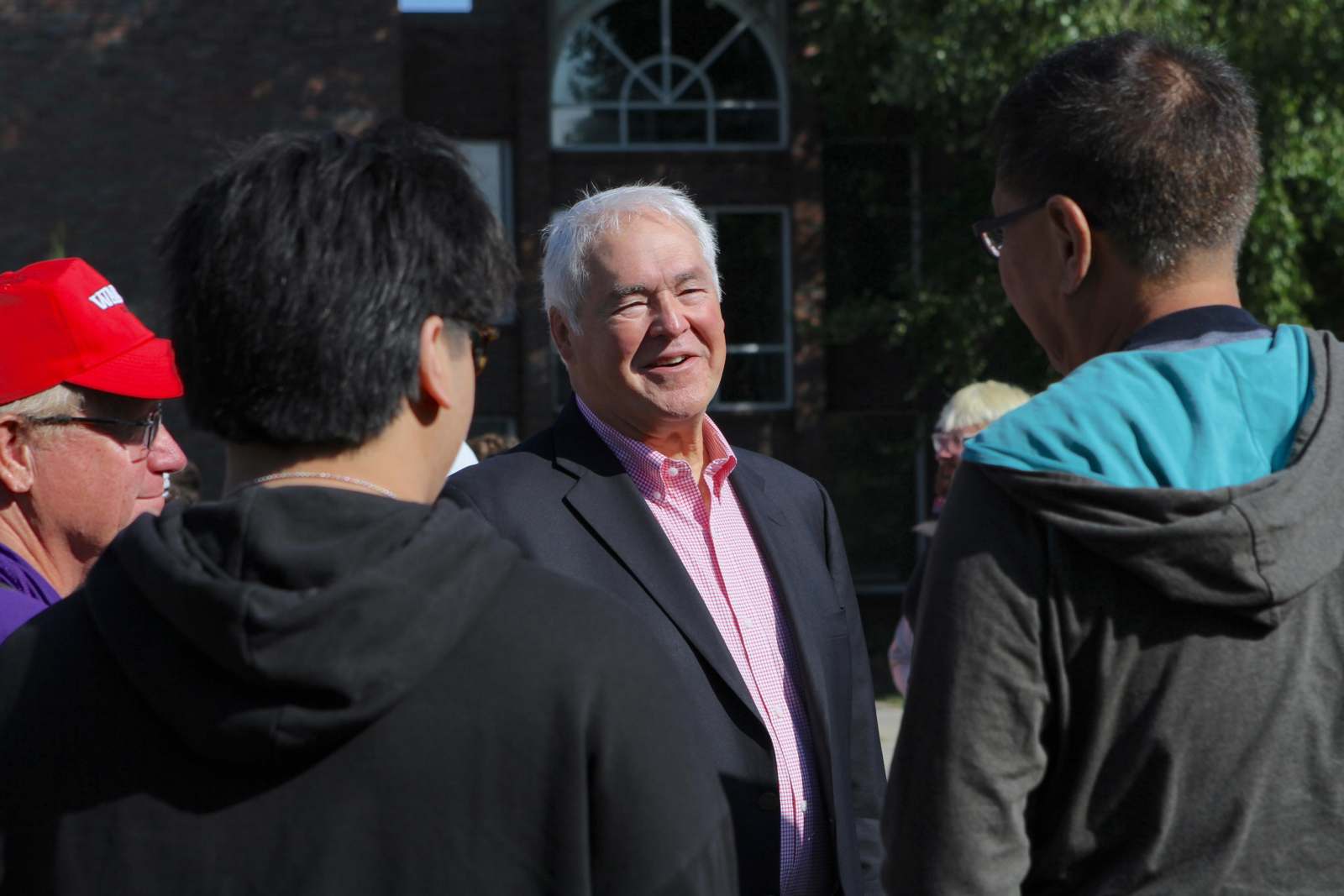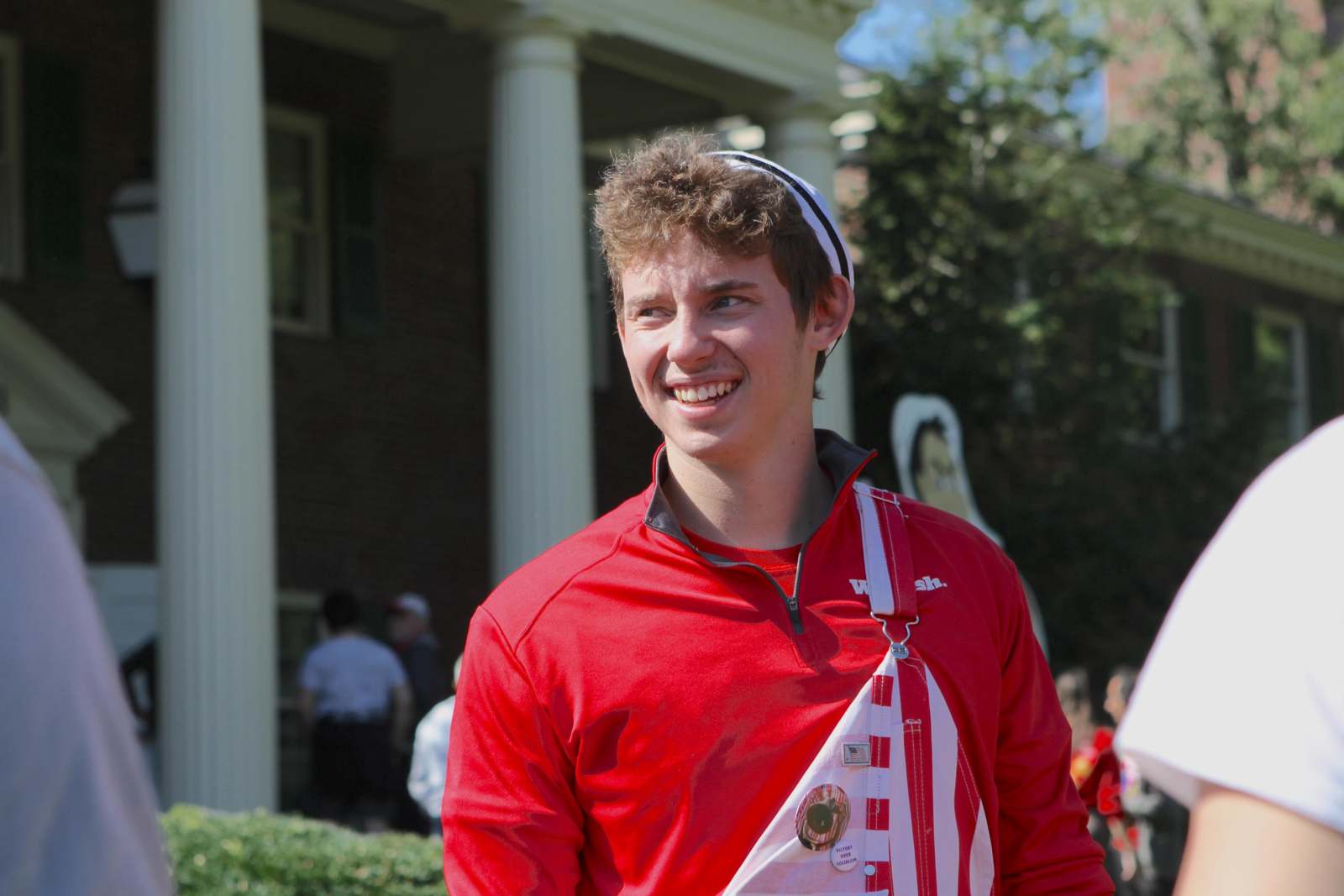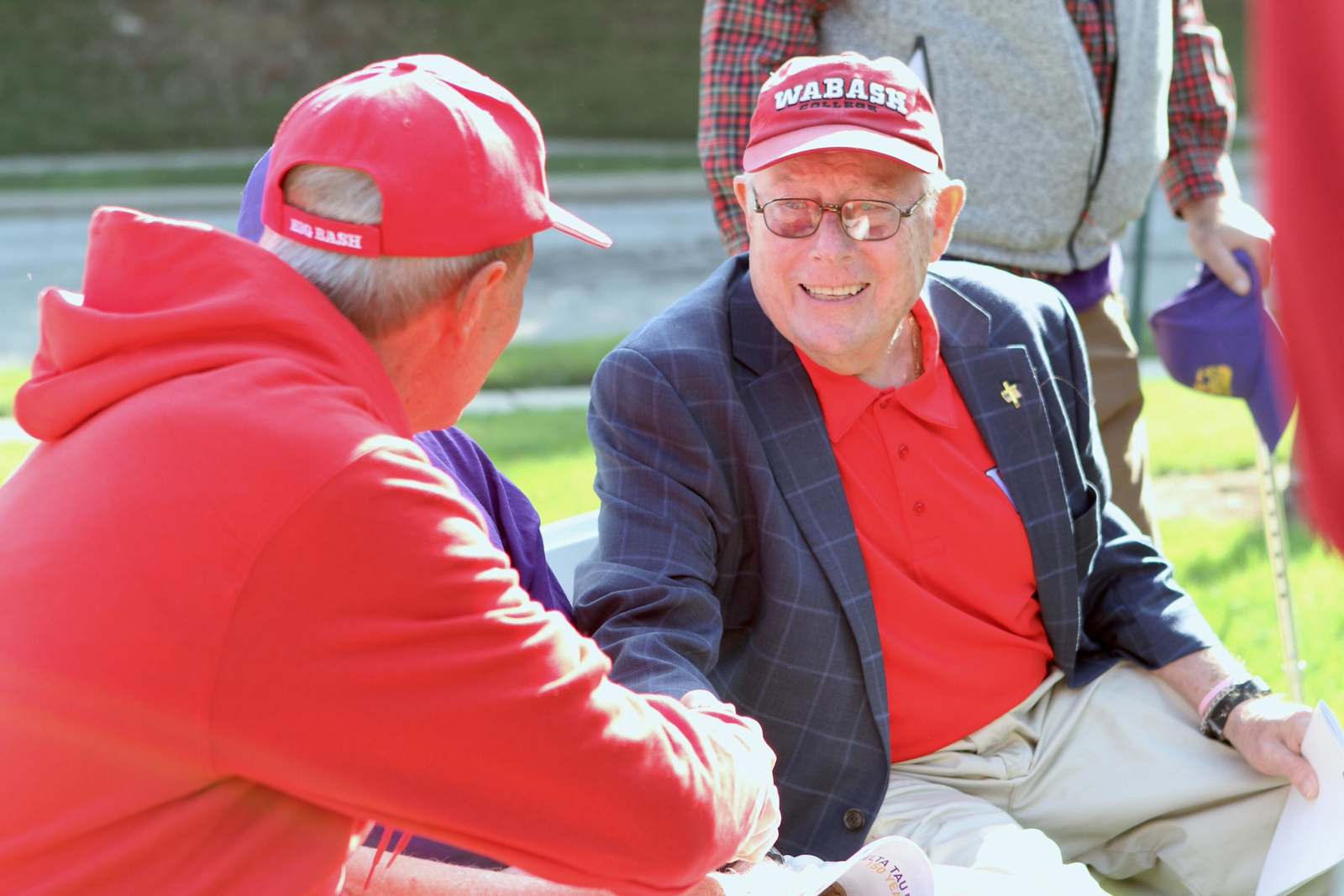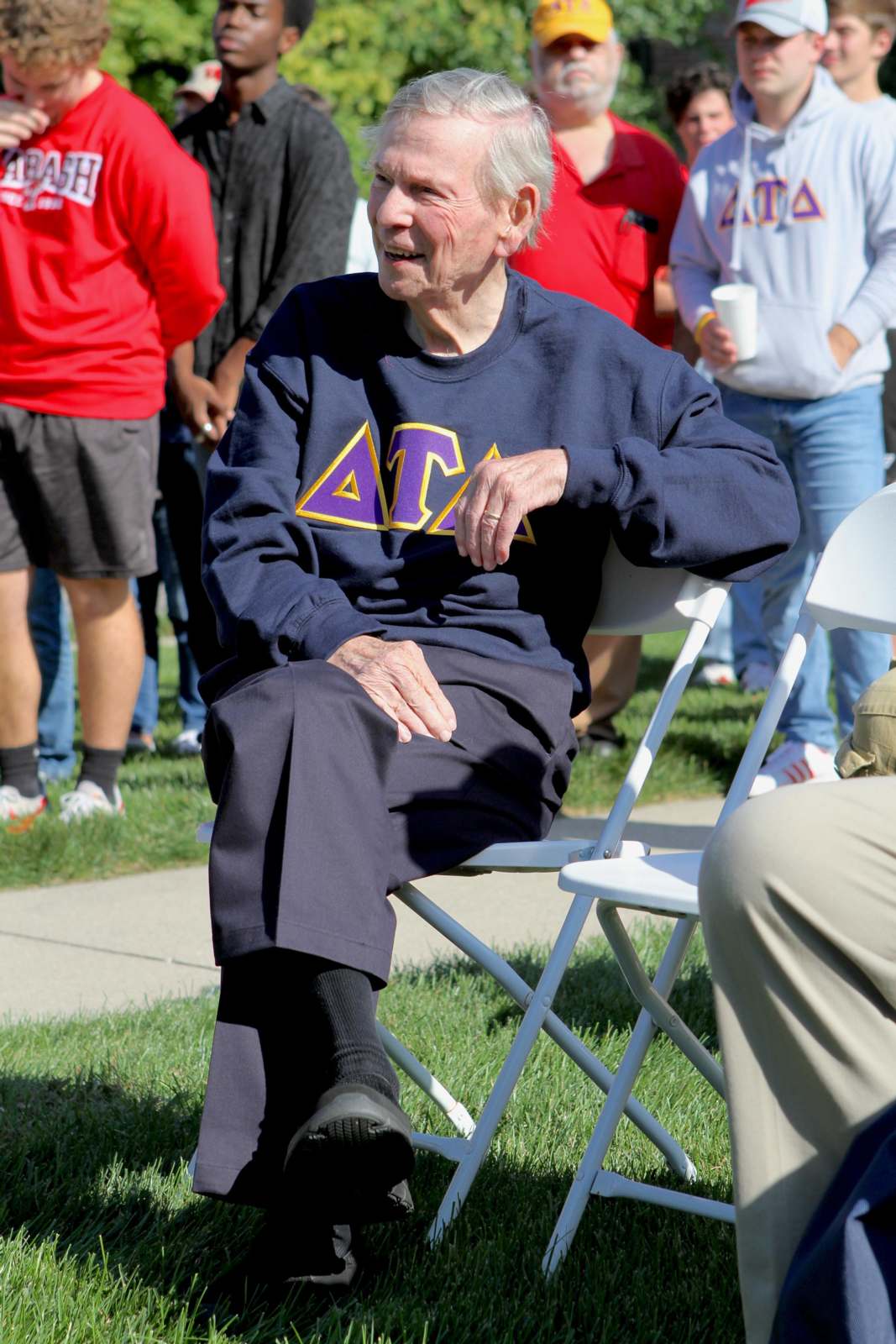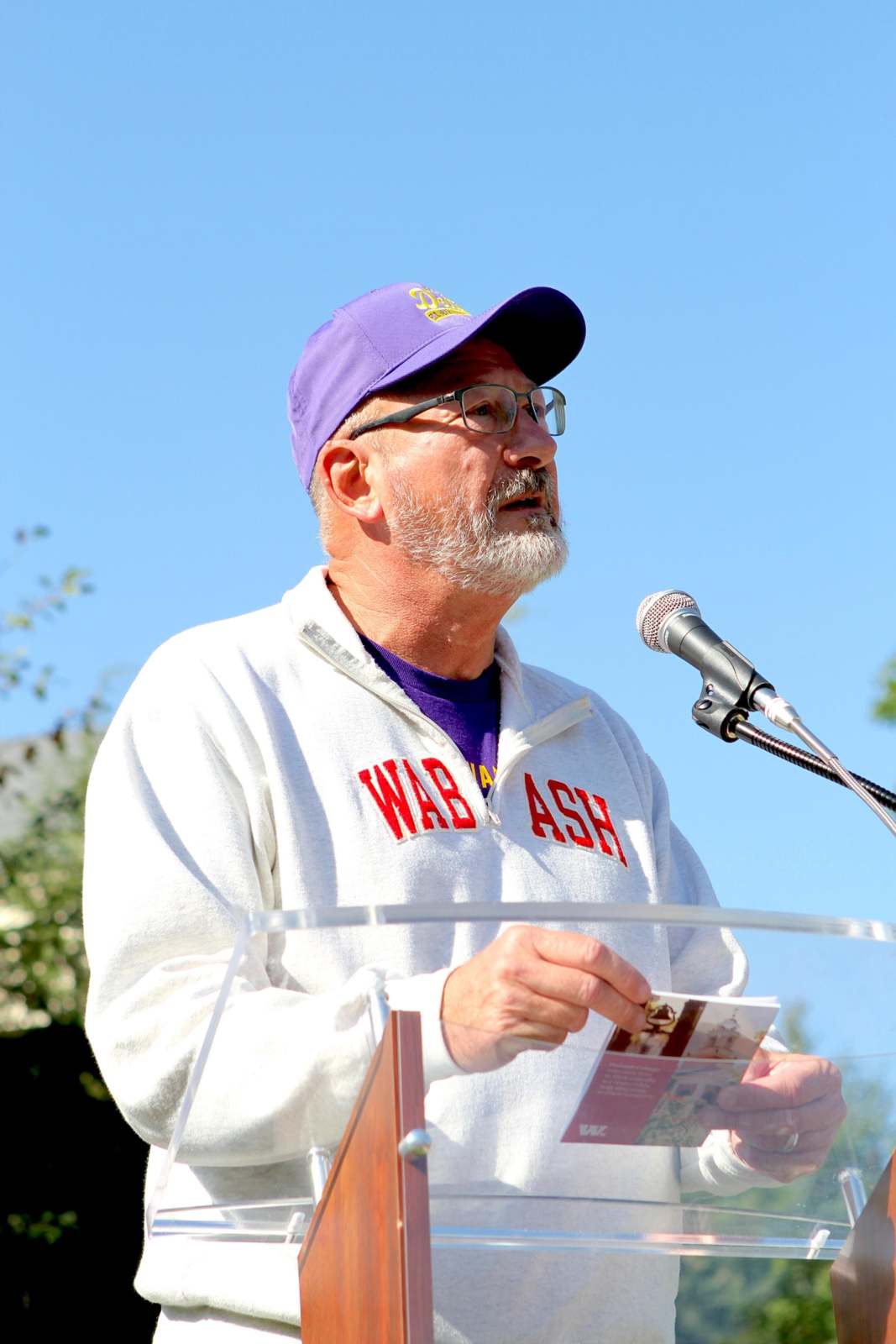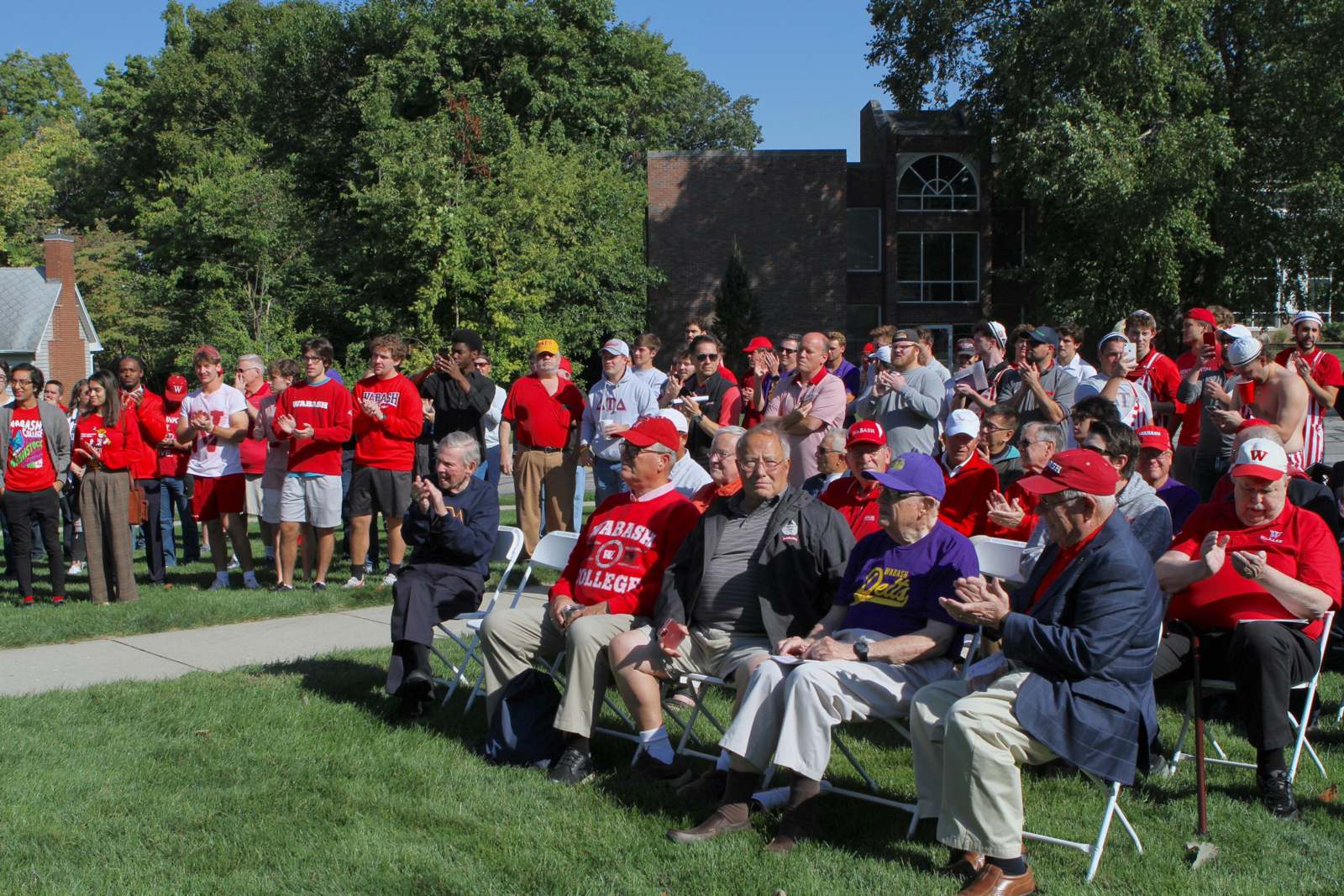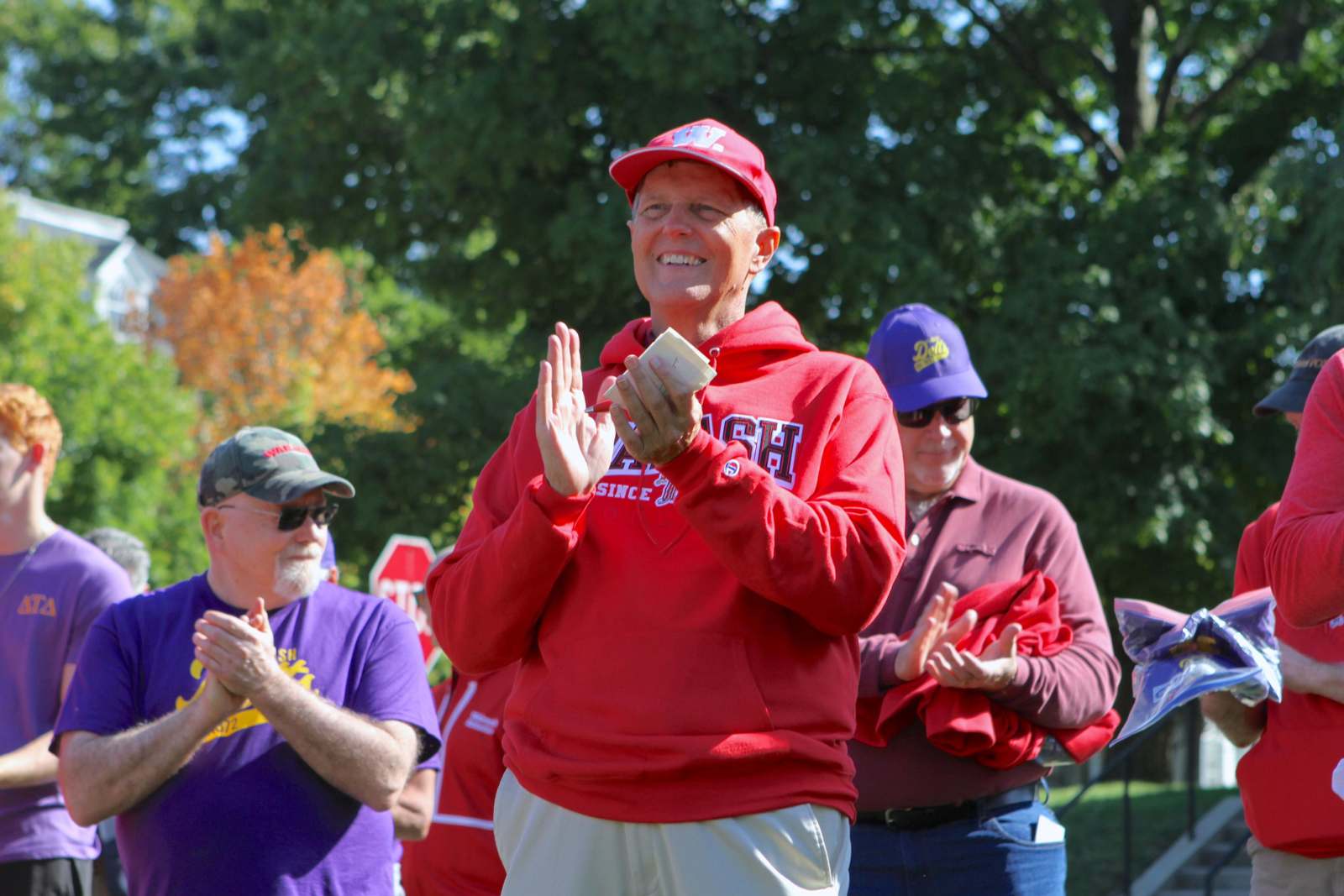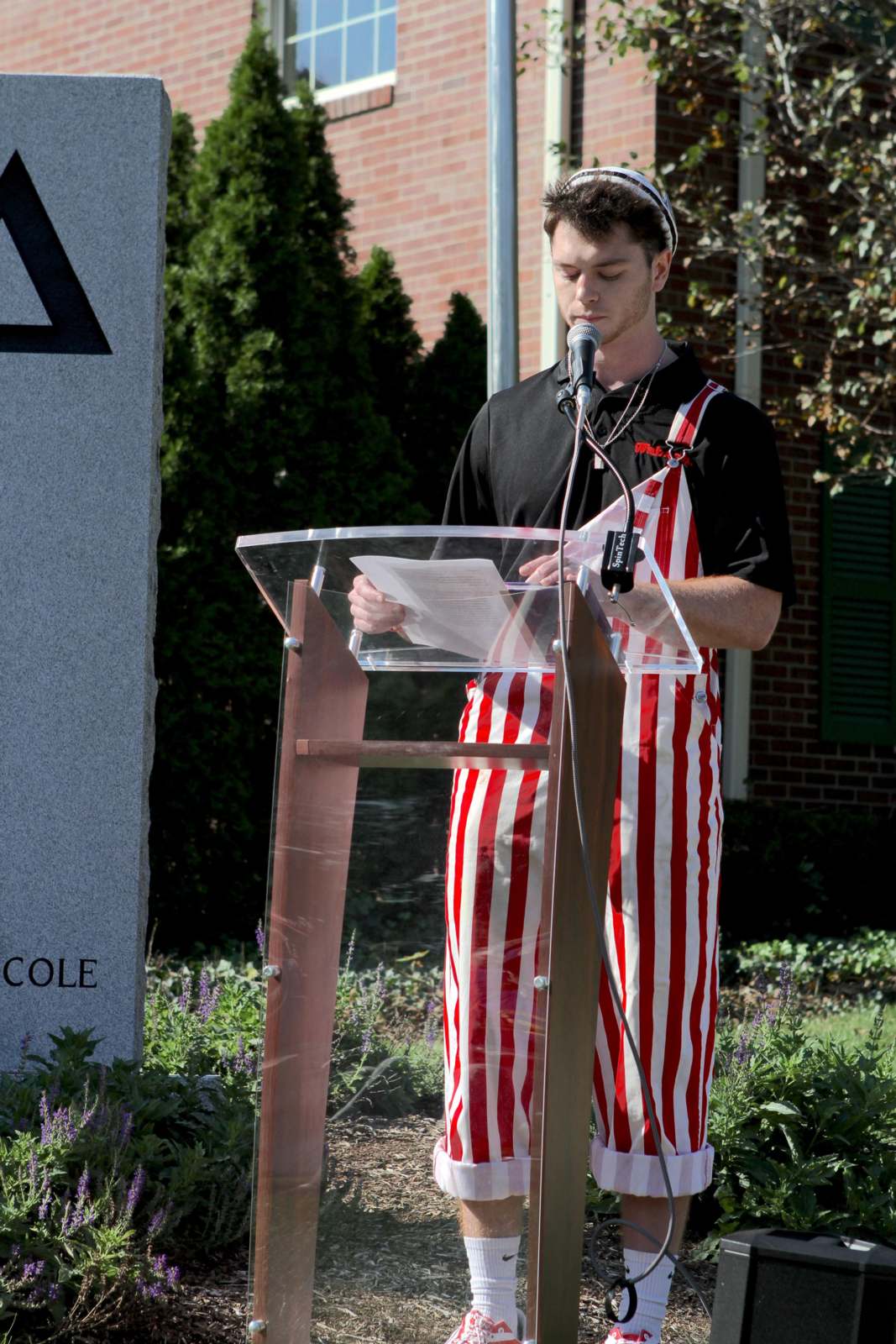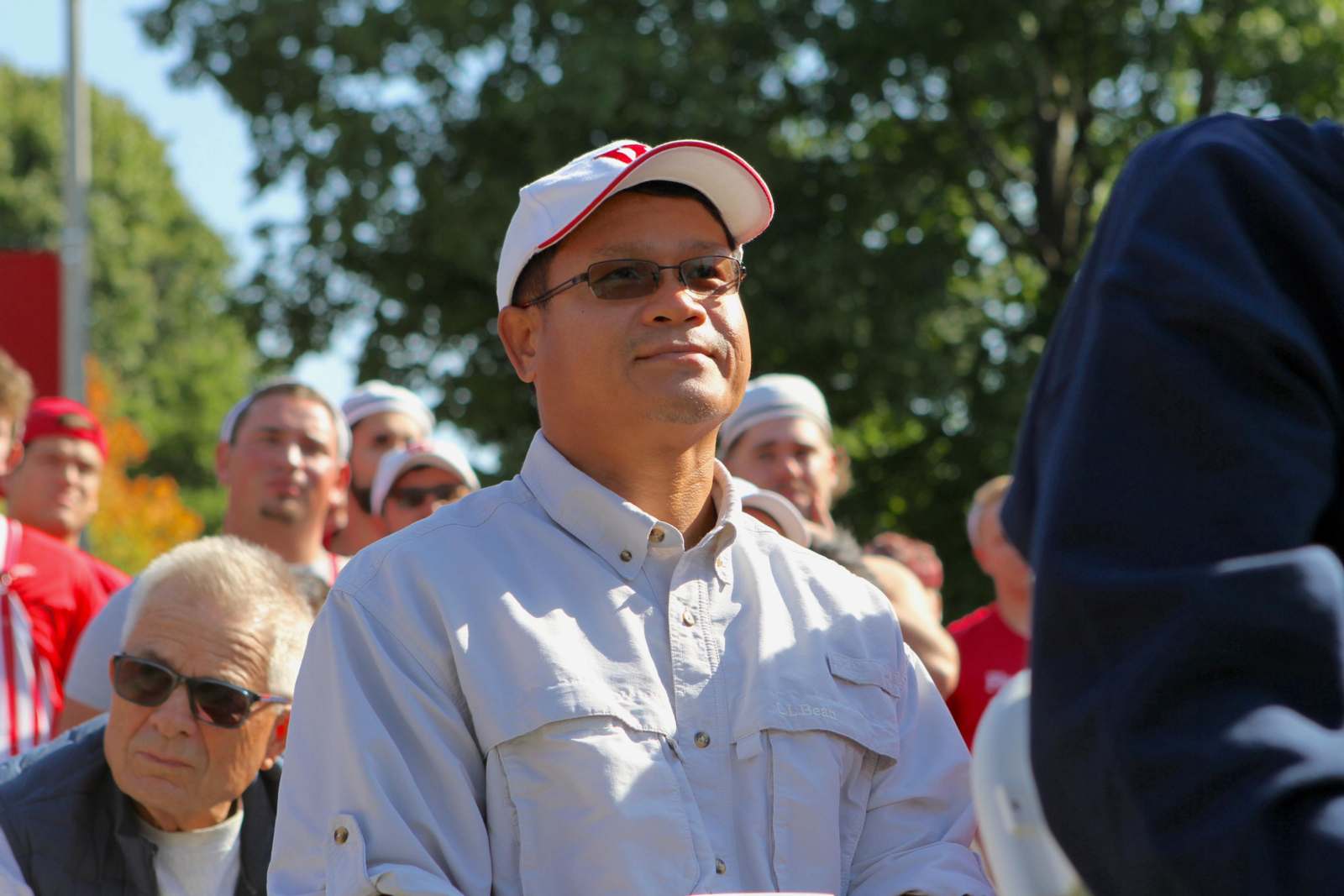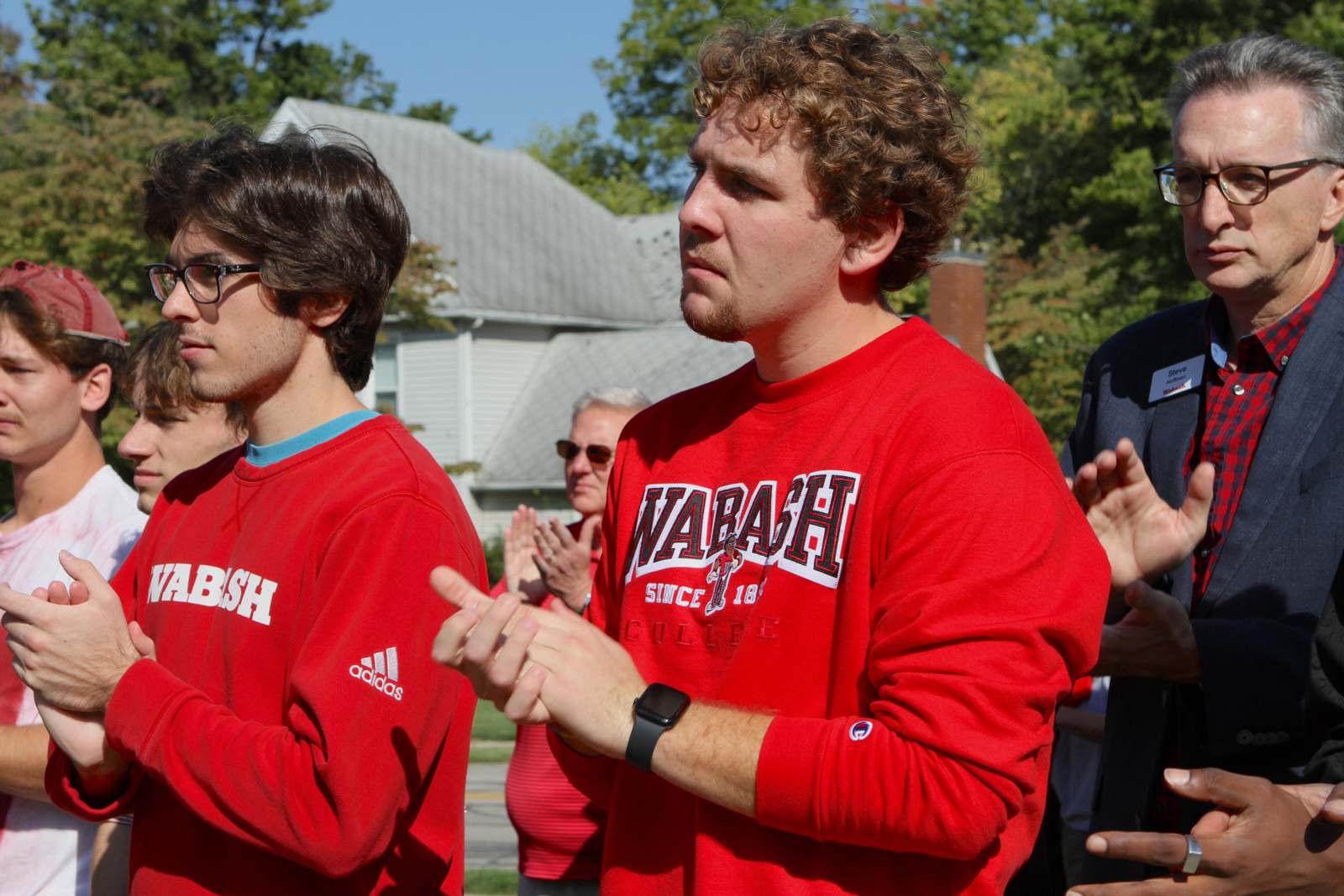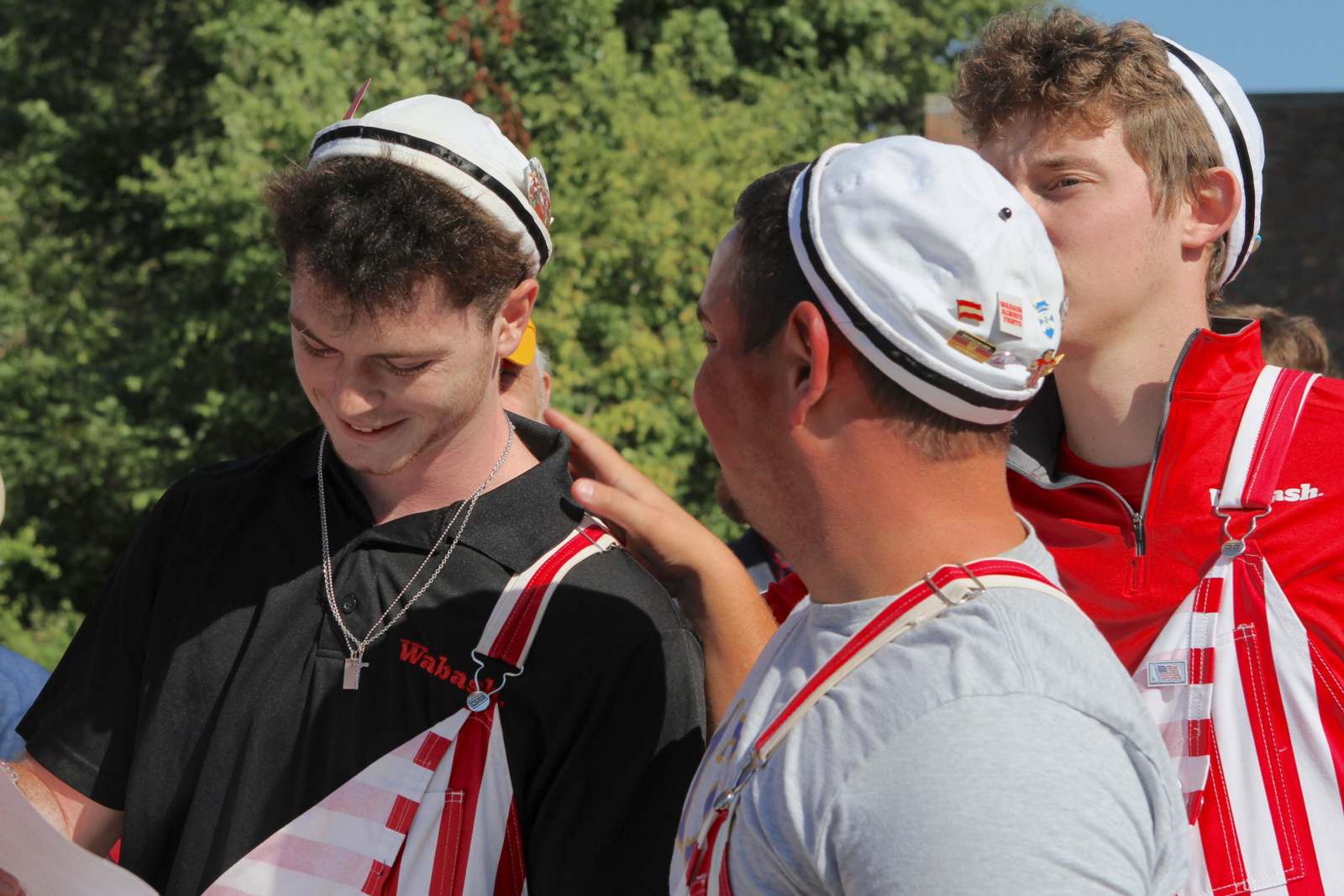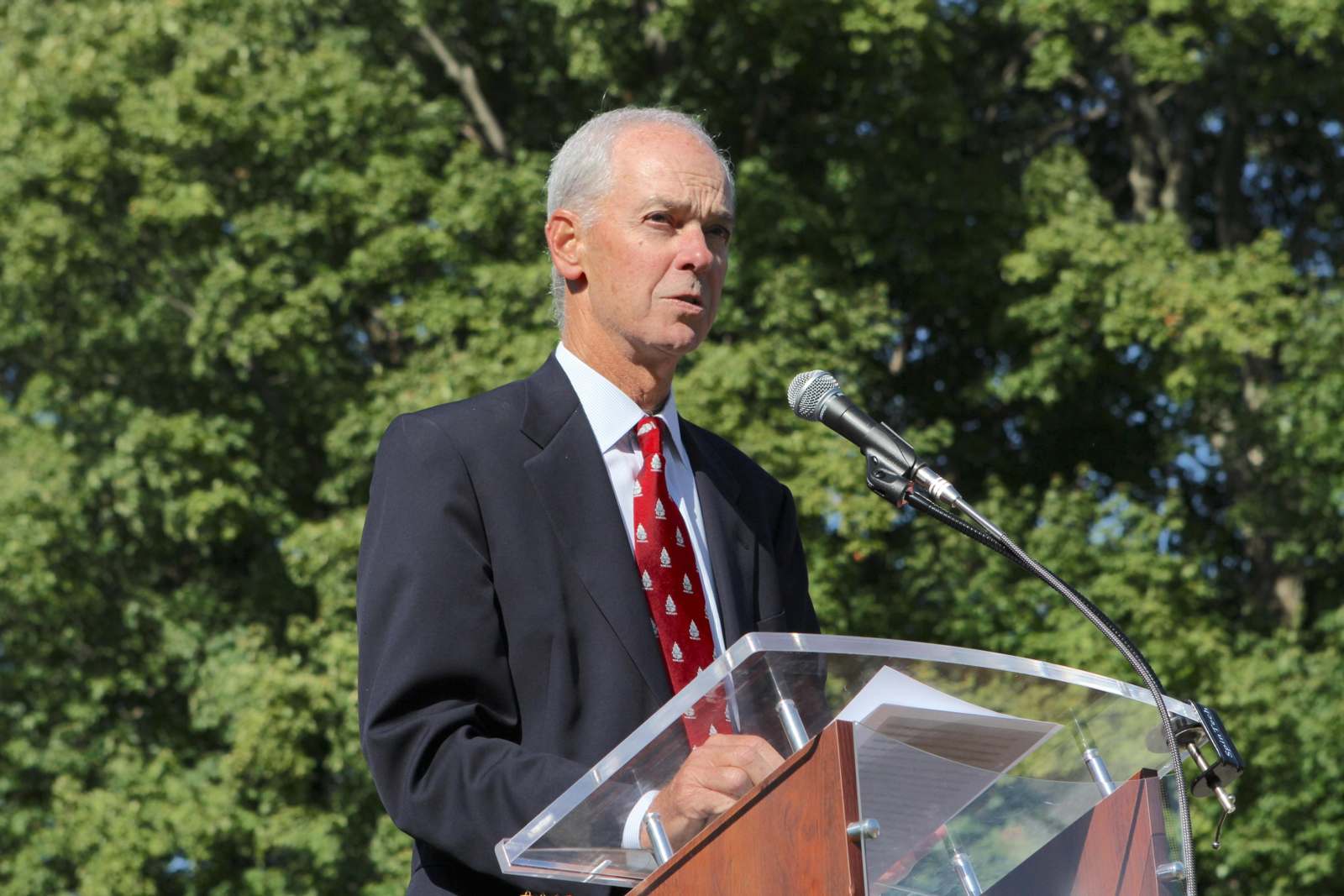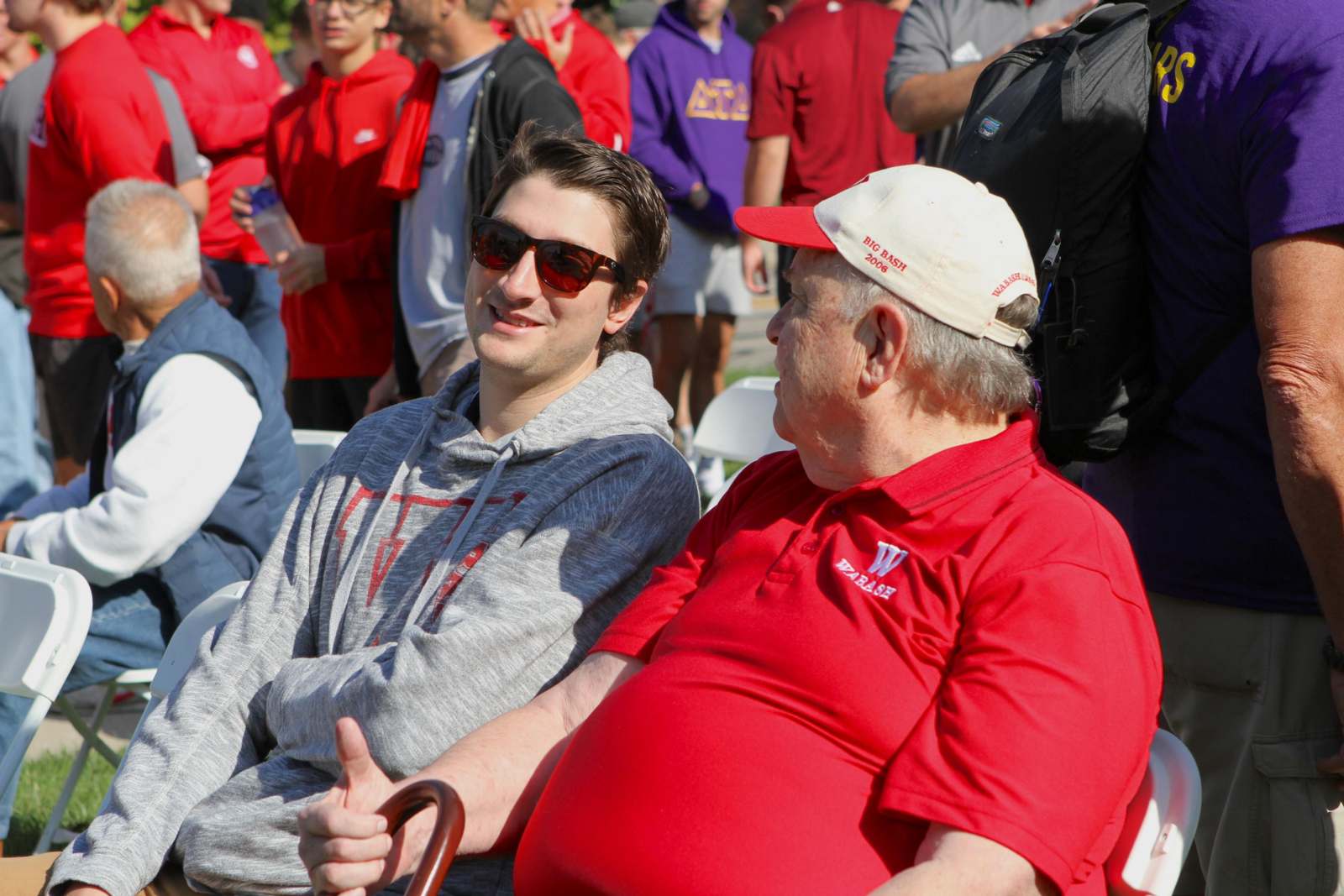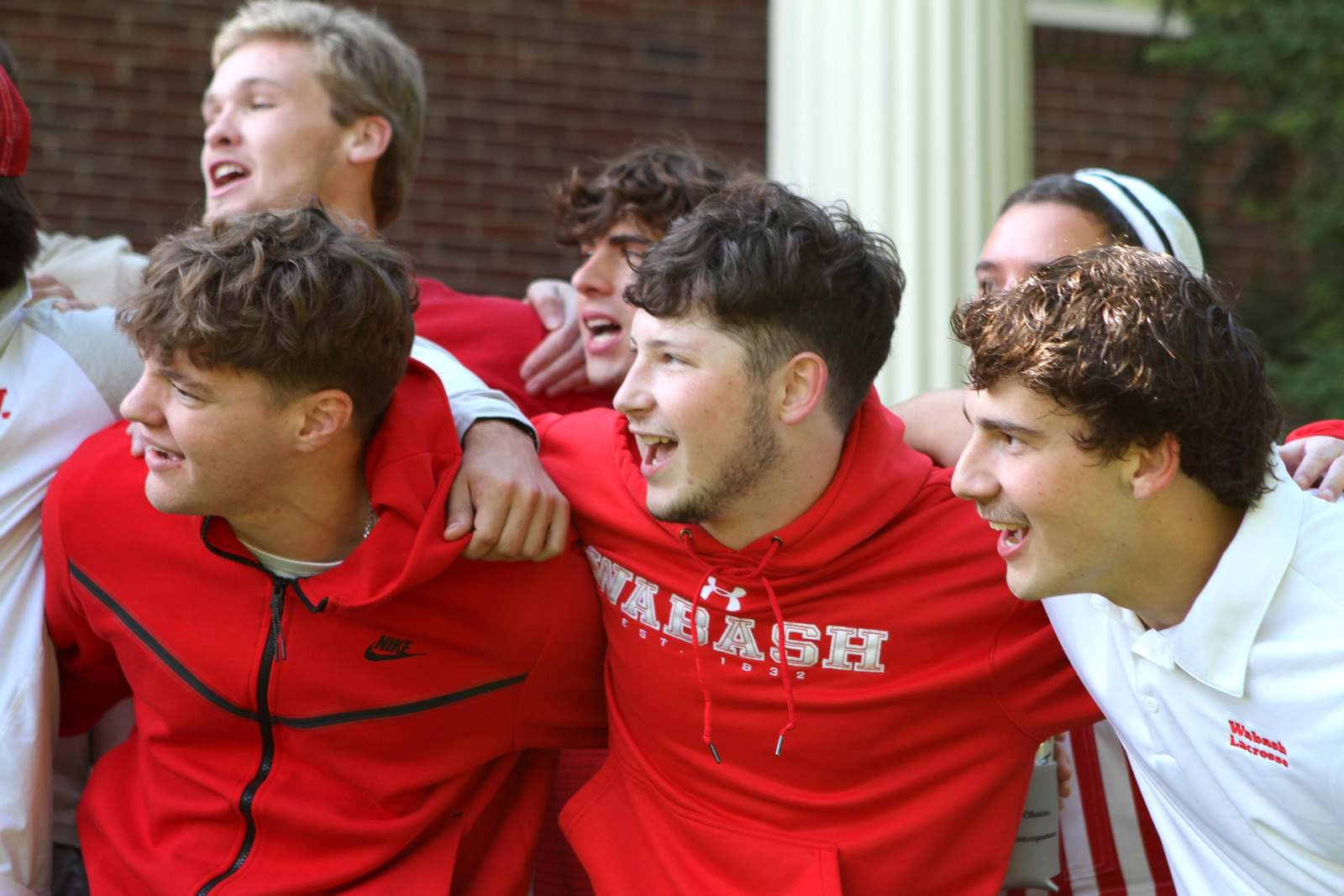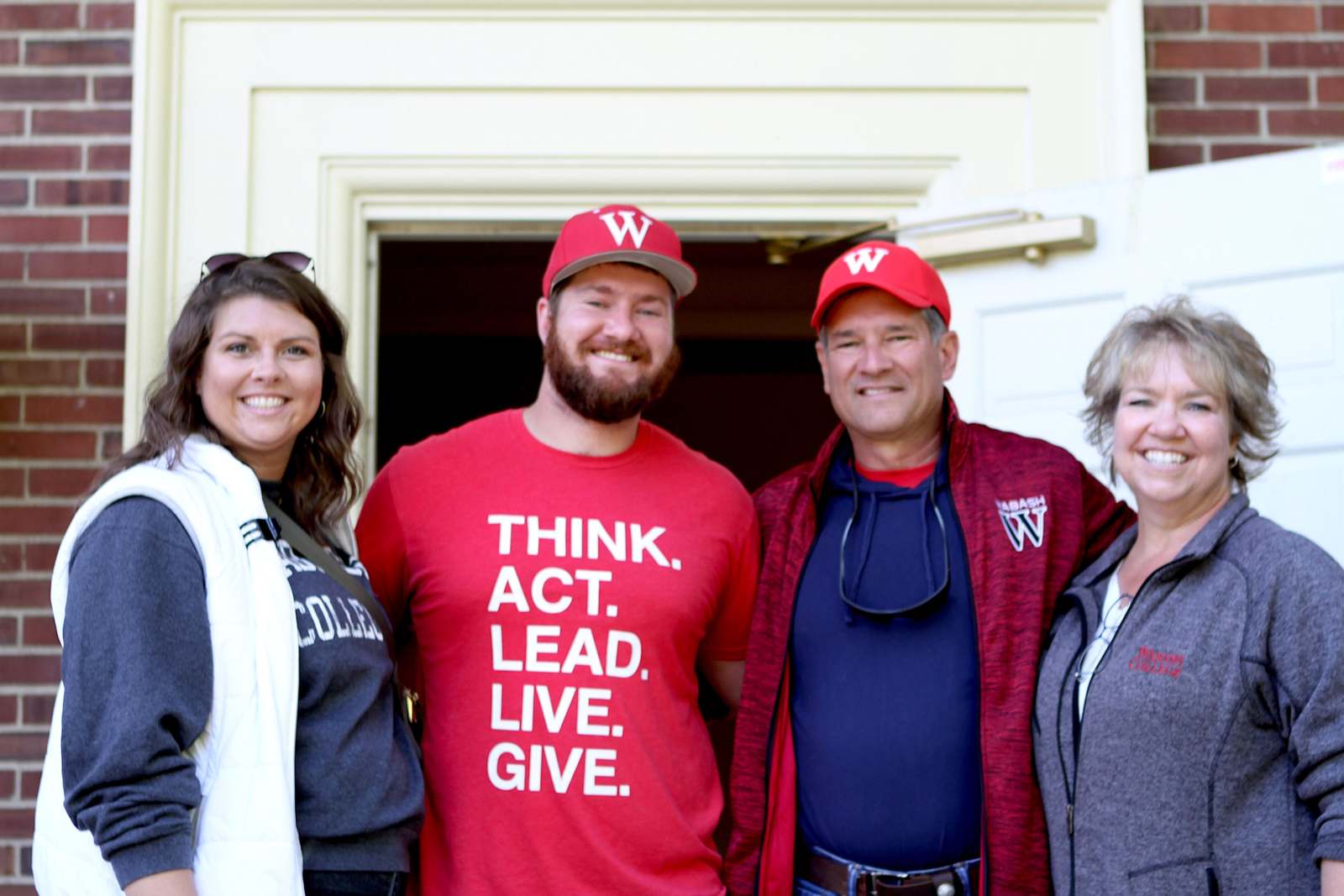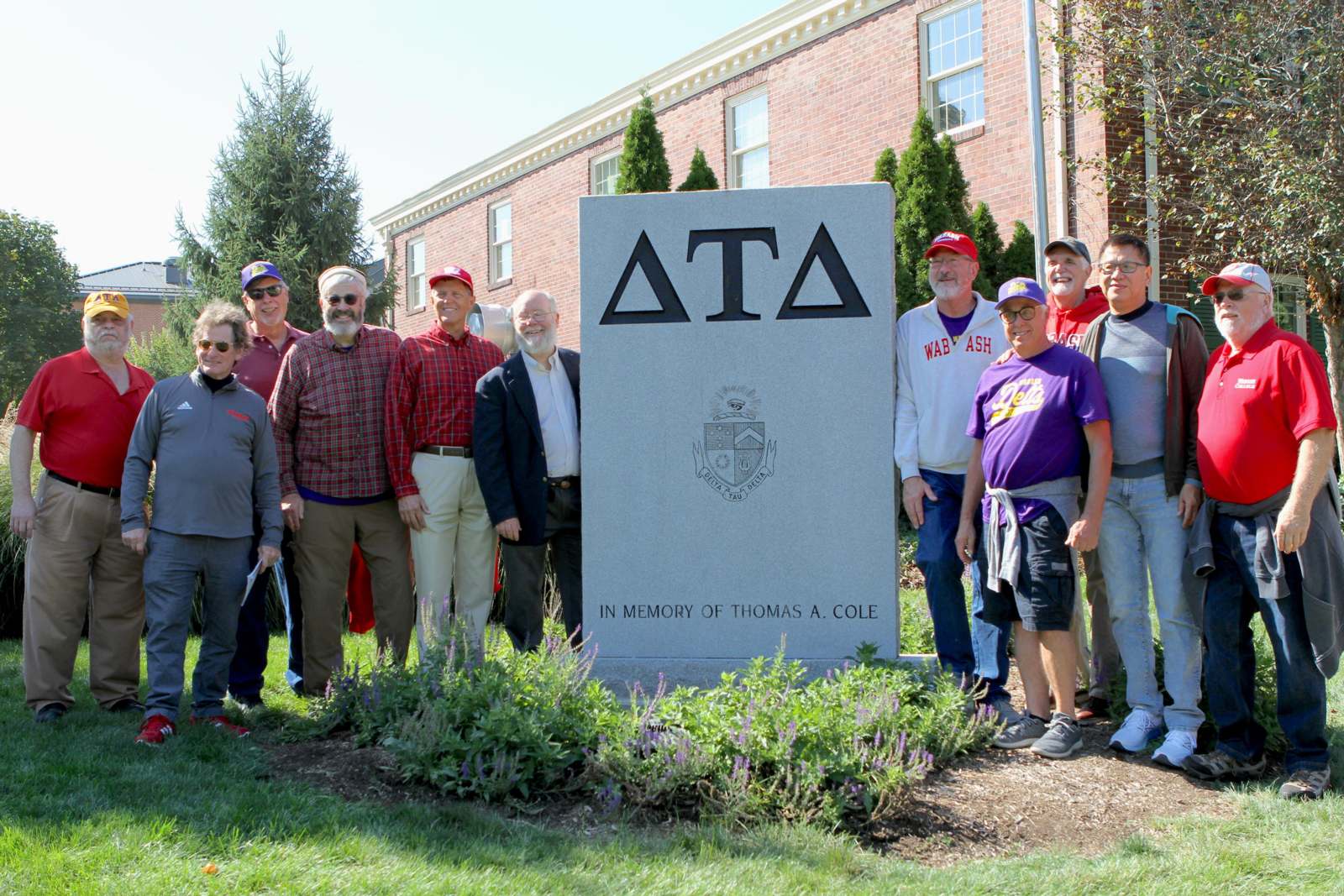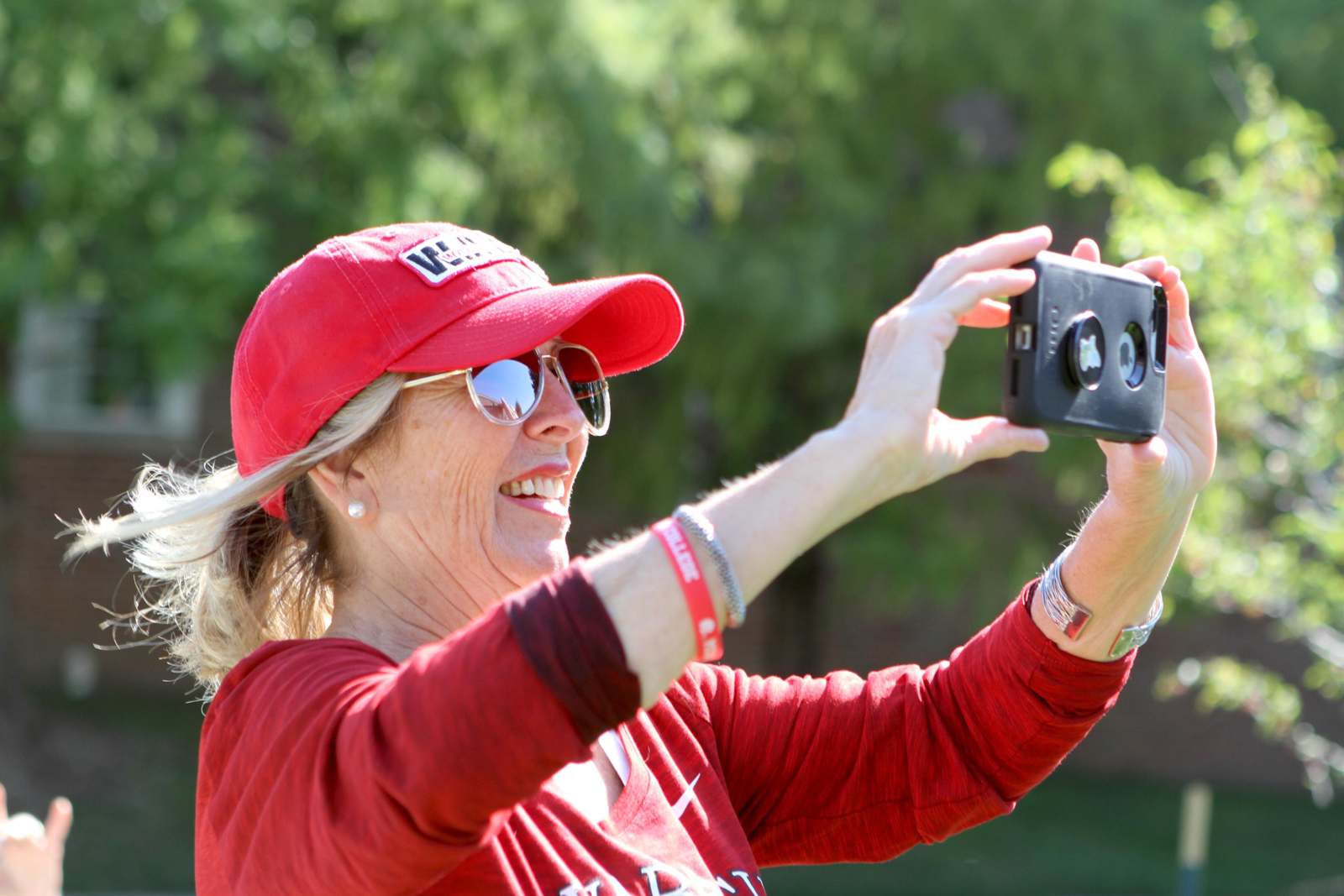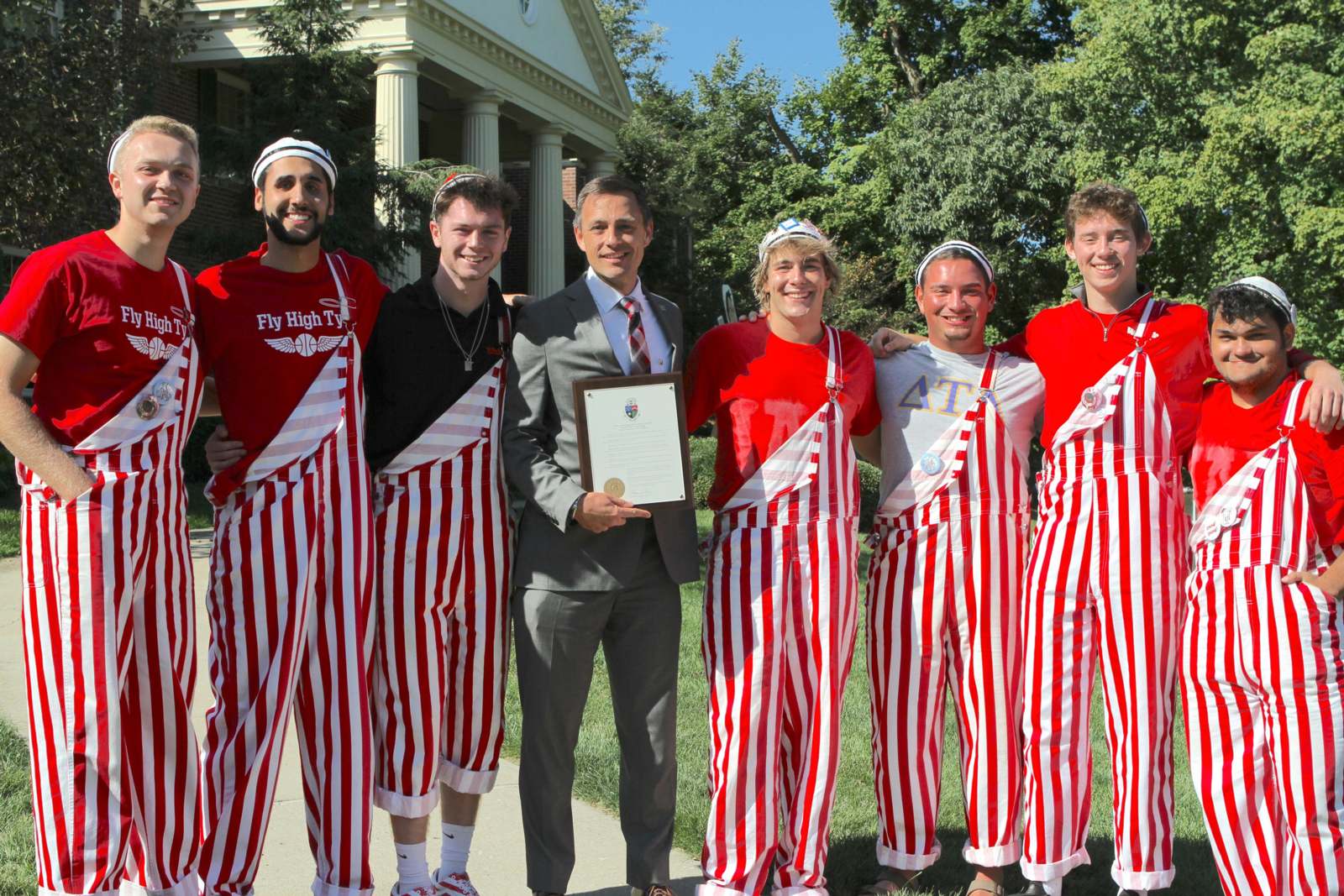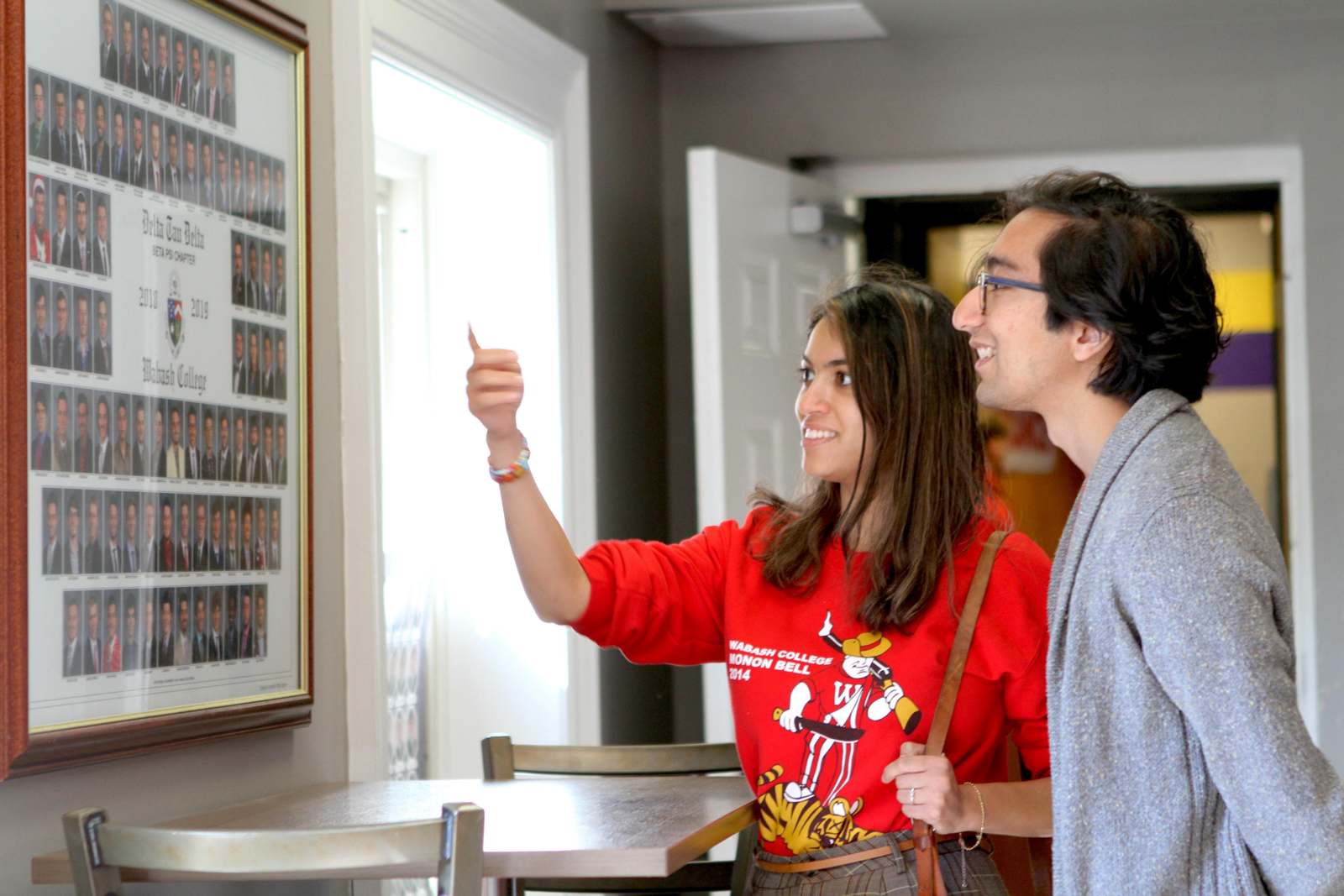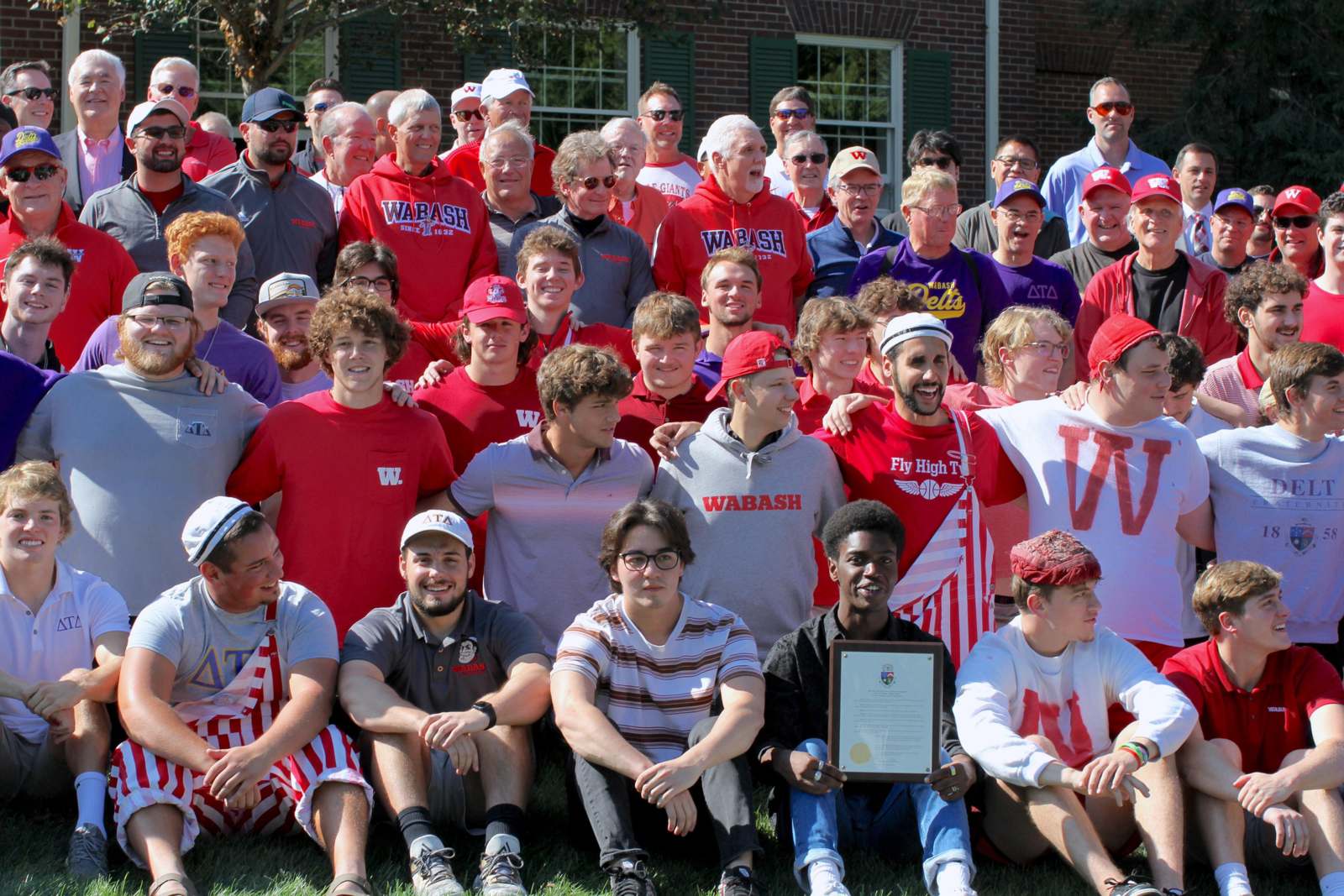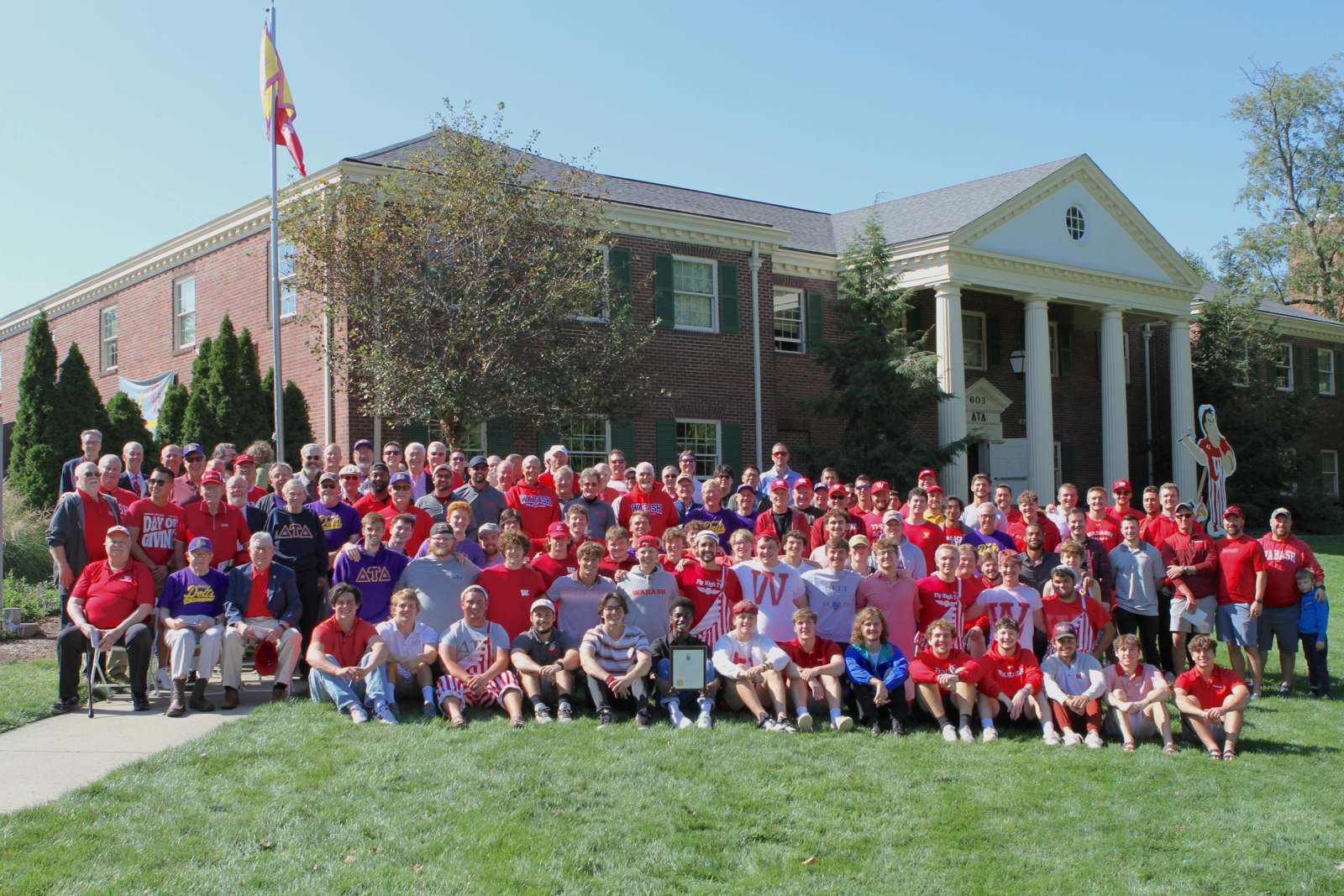Delta Tau Delta 150th Anniversary Celebration

Students, alumni and guests gathered on Saturday, Sept. 24, 2022, to celebrate Delta Tau Delta’s 150th Anniversary on campus. The celebration aligned with Homecoming 2022 and involved a formal dedication, tailgate and post-game celebration at the chapter house with live music and food. The dedication ceremony featured members of the undergraduate chapter, college administration, national fraternity leadership, and alumni volunteers. Originally installed in 1872, more than 1700 Wabash men have become members of the Delta Tau Delta.
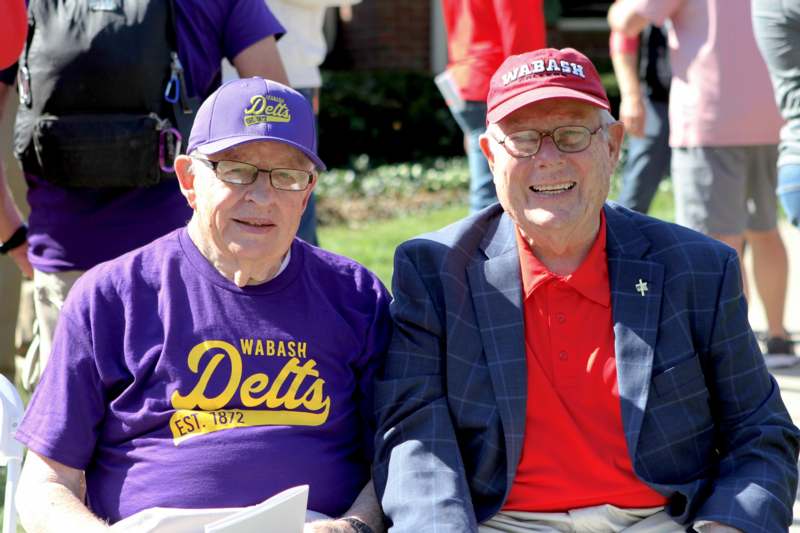
Students, alumni and guests gathered on Saturday, Sept. 24, 2022, to celebrate Delta Tau Delta’s 150th Anniversary on campus. The celebration aligned with Homecoming 2022 and involved a formal dedication, tailgate and post-game celebration at the chapter house with live music and food. The dedication ceremony featured members of the undergraduate chapter, college administration, national fraternity leadership, and alumni volunteers. Originally installed in 1872, more than 1700 Wabash men have become members of the Delta Tau Delta.
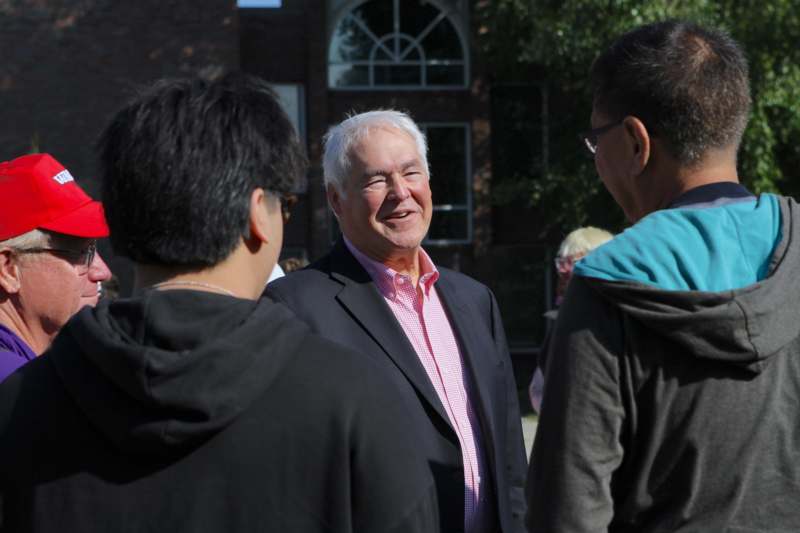
Students, alumni and guests gathered on Saturday, Sept. 24, 2022, to celebrate Delta Tau Delta’s 150th Anniversary on campus. The celebration aligned with Homecoming 2022 and involved a formal dedication, tailgate and post-game celebration at the chapter house with live music and food. The dedication ceremony featured members of the undergraduate chapter, college administration, national fraternity leadership, and alumni volunteers. Originally installed in 1872, more than 1700 Wabash men have become members of the Delta Tau Delta.
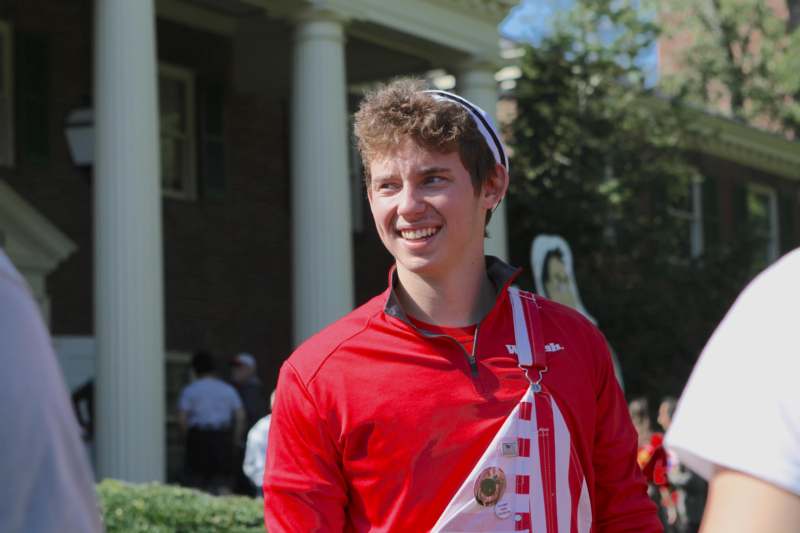
Students, alumni and guests gathered on Saturday, Sept. 24, 2022, to celebrate Delta Tau Delta’s 150th Anniversary on campus. The celebration aligned with Homecoming 2022 and involved a formal dedication, tailgate and post-game celebration at the chapter house with live music and food. The dedication ceremony featured members of the undergraduate chapter, college administration, national fraternity leadership, and alumni volunteers. Originally installed in 1872, more than 1700 Wabash men have become members of the Delta Tau Delta.
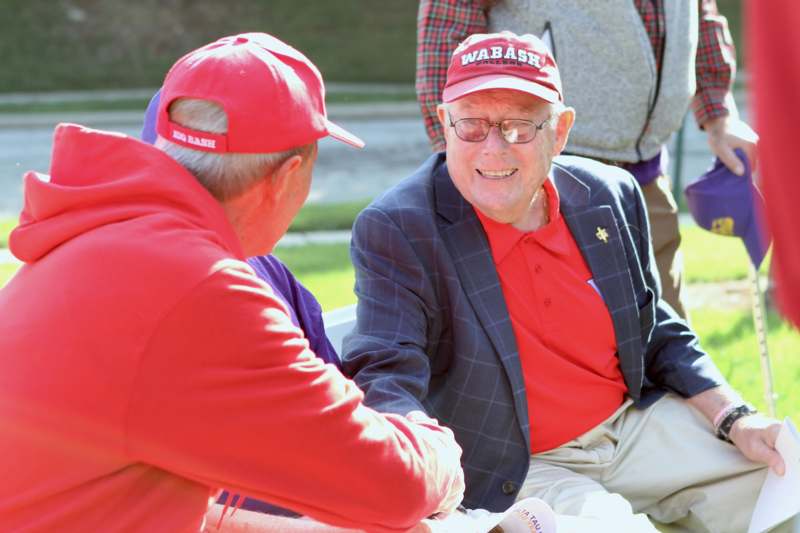
Students, alumni and guests gathered on Saturday, Sept. 24, 2022, to celebrate Delta Tau Delta’s 150th Anniversary on campus. The celebration aligned with Homecoming 2022 and involved a formal dedication, tailgate and post-game celebration at the chapter house with live music and food. The dedication ceremony featured members of the undergraduate chapter, college administration, national fraternity leadership, and alumni volunteers. Originally installed in 1872, more than 1700 Wabash men have become members of the Delta Tau Delta.
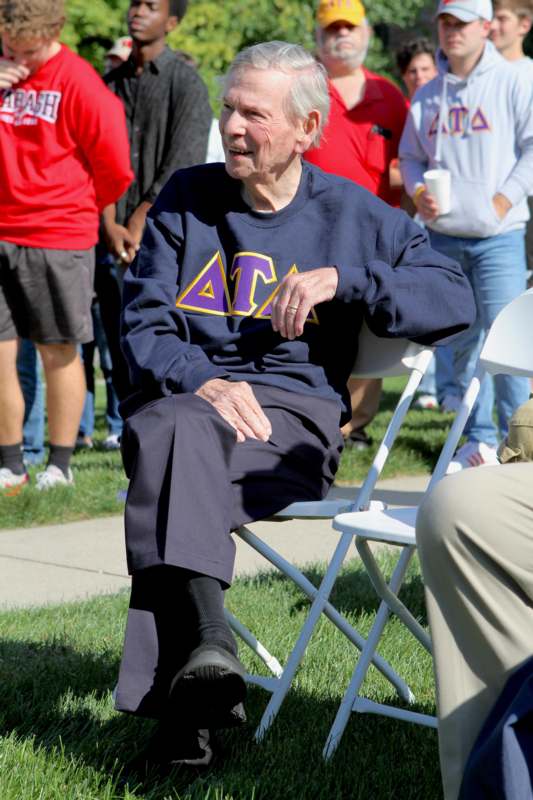
Students, alumni and guests gathered on Saturday, Sept. 24, 2022, to celebrate Delta Tau Delta’s 150th Anniversary on campus. The celebration aligned with Homecoming 2022 and involved a formal dedication, tailgate and post-game celebration at the chapter house with live music and food. The dedication ceremony featured members of the undergraduate chapter, college administration, national fraternity leadership, and alumni volunteers. Originally installed in 1872, more than 1700 Wabash men have become members of the Delta Tau Delta.
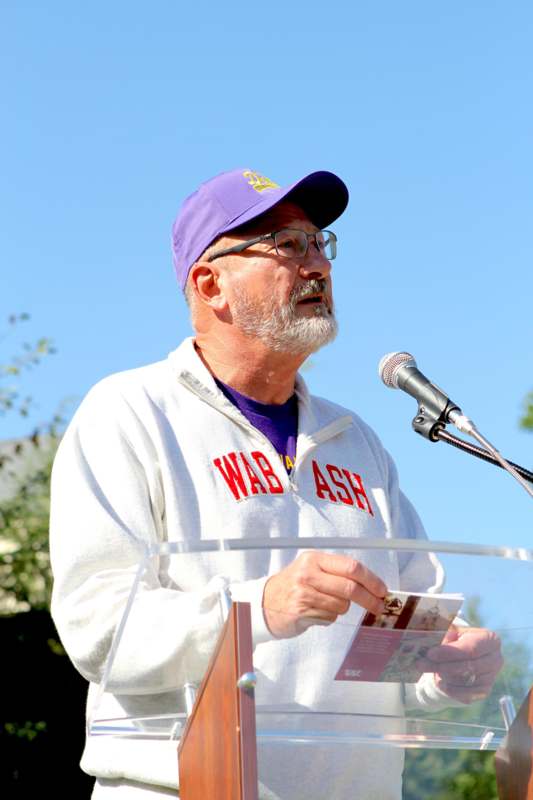
Students, alumni and guests gathered on Saturday, Sept. 24, 2022, to celebrate Delta Tau Delta’s 150th Anniversary on campus. The celebration aligned with Homecoming 2022 and involved a formal dedication, tailgate and post-game celebration at the chapter house with live music and food. The dedication ceremony featured members of the undergraduate chapter, college administration, national fraternity leadership, and alumni volunteers. Originally installed in 1872, more than 1700 Wabash men have become members of the Delta Tau Delta.
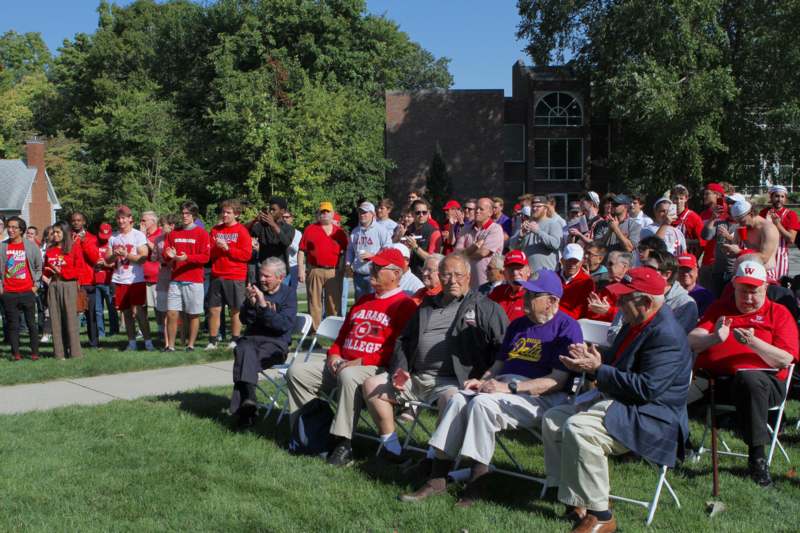
Students, alumni and guests gathered on Saturday, Sept. 24, 2022, to celebrate Delta Tau Delta’s 150th Anniversary on campus. The celebration aligned with Homecoming 2022 and involved a formal dedication, tailgate and post-game celebration at the chapter house with live music and food. The dedication ceremony featured members of the undergraduate chapter, college administration, national fraternity leadership, and alumni volunteers. Originally installed in 1872, more than 1700 Wabash men have become members of the Delta Tau Delta.
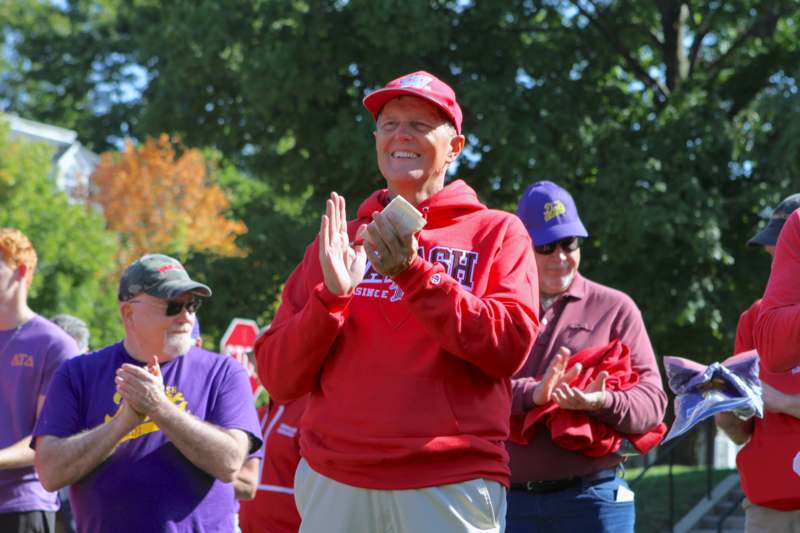
Students, alumni and guests gathered on Saturday, Sept. 24, 2022, to celebrate Delta Tau Delta’s 150th Anniversary on campus. The celebration aligned with Homecoming 2022 and involved a formal dedication, tailgate and post-game celebration at the chapter house with live music and food. The dedication ceremony featured members of the undergraduate chapter, college administration, national fraternity leadership, and alumni volunteers. Originally installed in 1872, more than 1700 Wabash men have become members of the Delta Tau Delta.
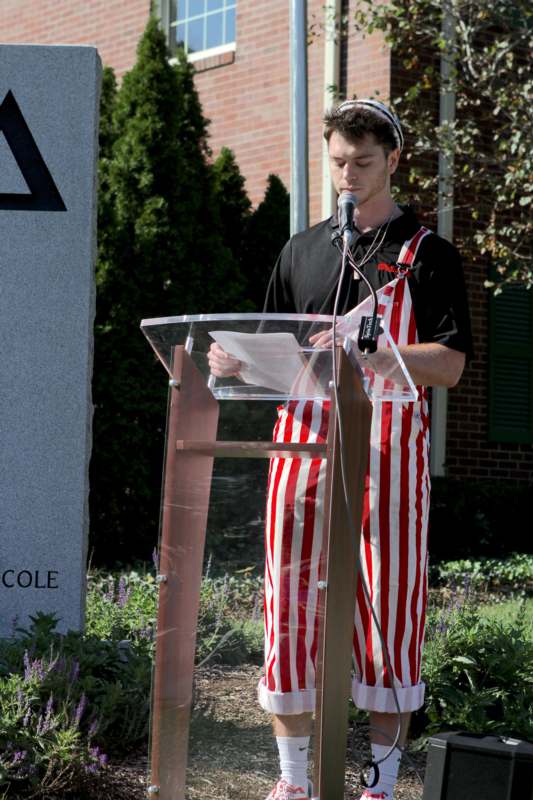
Students, alumni and guests gathered on Saturday, Sept. 24, 2022, to celebrate Delta Tau Delta’s 150th Anniversary on campus. The celebration aligned with Homecoming 2022 and involved a formal dedication, tailgate and post-game celebration at the chapter house with live music and food. The dedication ceremony featured members of the undergraduate chapter, college administration, national fraternity leadership, and alumni volunteers. Originally installed in 1872, more than 1700 Wabash men have become members of the Delta Tau Delta.
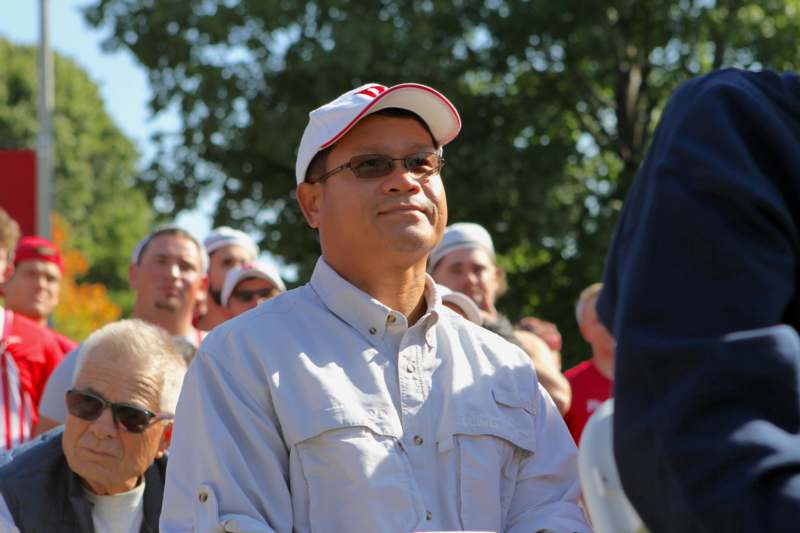
Students, alumni and guests gathered on Saturday, Sept. 24, 2022, to celebrate Delta Tau Delta’s 150th Anniversary on campus. The celebration aligned with Homecoming 2022 and involved a formal dedication, tailgate and post-game celebration at the chapter house with live music and food. The dedication ceremony featured members of the undergraduate chapter, college administration, national fraternity leadership, and alumni volunteers. Originally installed in 1872, more than 1700 Wabash men have become members of the Delta Tau Delta.
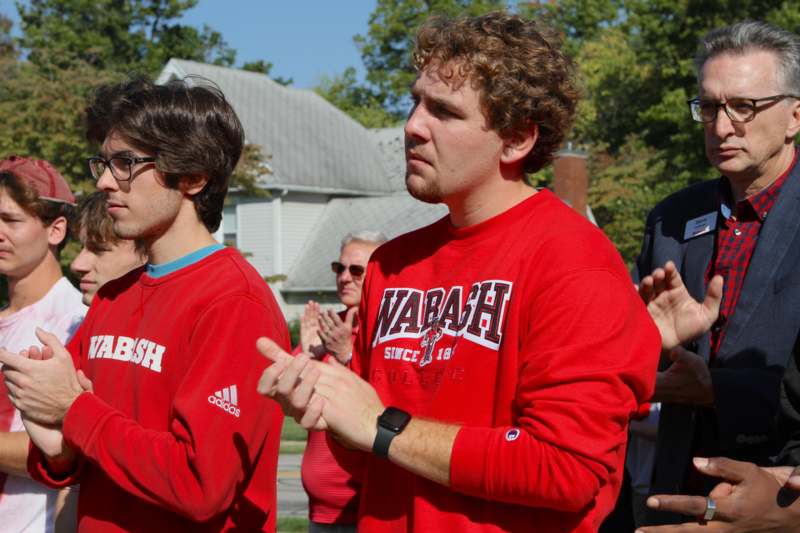
Students, alumni and guests gathered on Saturday, Sept. 24, 2022, to celebrate Delta Tau Delta’s 150th Anniversary on campus. The celebration aligned with Homecoming 2022 and involved a formal dedication, tailgate and post-game celebration at the chapter house with live music and food. The dedication ceremony featured members of the undergraduate chapter, college administration, national fraternity leadership, and alumni volunteers. Originally installed in 1872, more than 1700 Wabash men have become members of the Delta Tau Delta.

Students, alumni and guests gathered on Saturday, Sept. 24, 2022, to celebrate Delta Tau Delta’s 150th Anniversary on campus. The celebration aligned with Homecoming 2022 and involved a formal dedication, tailgate and post-game celebration at the chapter house with live music and food. The dedication ceremony featured members of the undergraduate chapter, college administration, national fraternity leadership, and alumni volunteers. Originally installed in 1872, more than 1700 Wabash men have become members of the Delta Tau Delta.
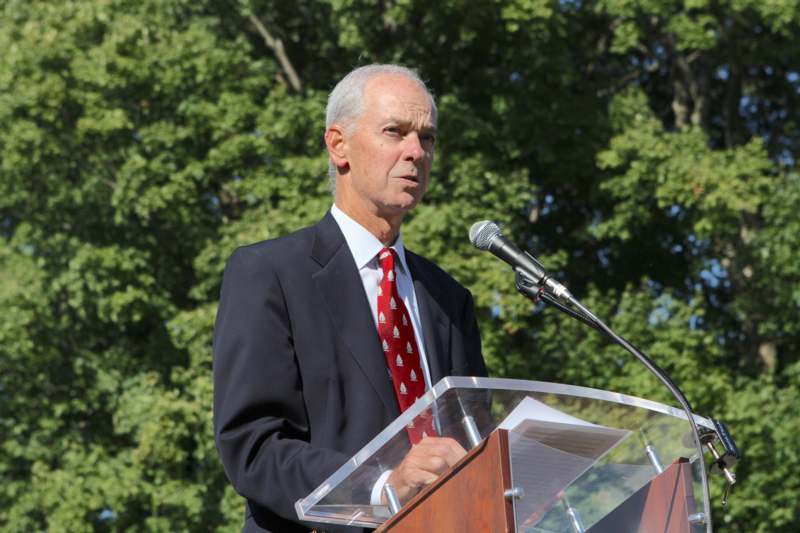
Students, alumni and guests gathered on Saturday, Sept. 24, 2022, to celebrate Delta Tau Delta’s 150th Anniversary on campus. The celebration aligned with Homecoming 2022 and involved a formal dedication, tailgate and post-game celebration at the chapter house with live music and food. The dedication ceremony featured members of the undergraduate chapter, college administration, national fraternity leadership, and alumni volunteers. Originally installed in 1872, more than 1700 Wabash men have become members of the Delta Tau Delta.
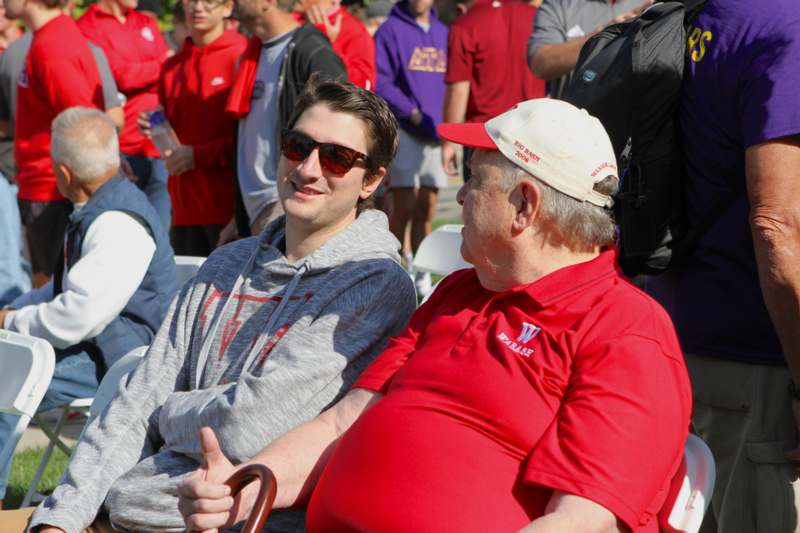
Students, alumni and guests gathered on Saturday, Sept. 24, 2022, to celebrate Delta Tau Delta’s 150th Anniversary on campus. The celebration aligned with Homecoming 2022 and involved a formal dedication, tailgate and post-game celebration at the chapter house with live music and food. The dedication ceremony featured members of the undergraduate chapter, college administration, national fraternity leadership, and alumni volunteers. Originally installed in 1872, more than 1700 Wabash men have become members of the Delta Tau Delta.
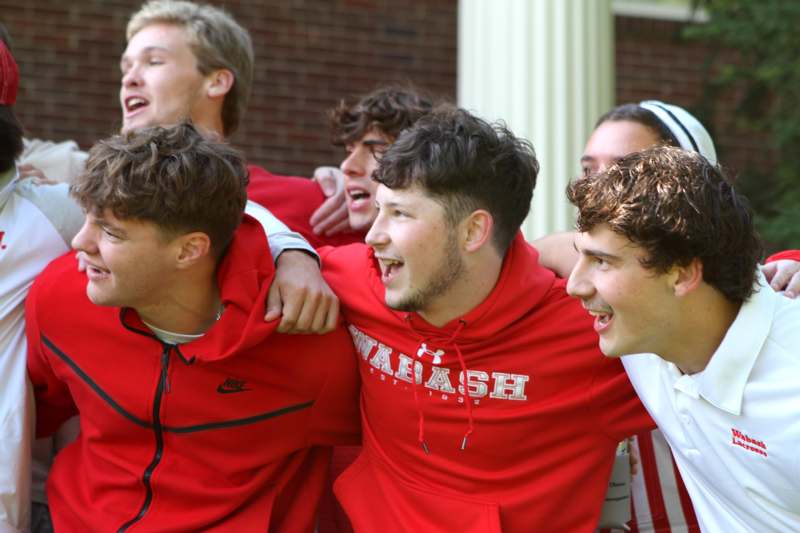
Students, alumni and guests gathered on Saturday, Sept. 24, 2022, to celebrate Delta Tau Delta’s 150th Anniversary on campus. The celebration aligned with Homecoming 2022 and involved a formal dedication, tailgate and post-game celebration at the chapter house with live music and food. The dedication ceremony featured members of the undergraduate chapter, college administration, national fraternity leadership, and alumni volunteers. Originally installed in 1872, more than 1700 Wabash men have become members of the Delta Tau Delta.

Students, alumni and guests gathered on Saturday, Sept. 24, 2022, to celebrate Delta Tau Delta’s 150th Anniversary on campus. The celebration aligned with Homecoming 2022 and involved a formal dedication, tailgate and post-game celebration at the chapter house with live music and food. The dedication ceremony featured members of the undergraduate chapter, college administration, national fraternity leadership, and alumni volunteers. Originally installed in 1872, more than 1700 Wabash men have become members of the Delta Tau Delta.
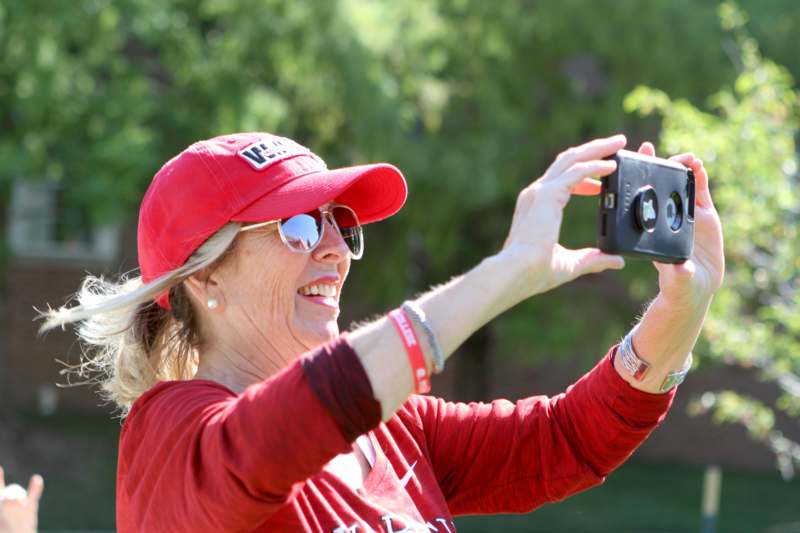
Students, alumni and guests gathered on Saturday, Sept. 24, 2022, to celebrate Delta Tau Delta’s 150th Anniversary on campus. The celebration aligned with Homecoming 2022 and involved a formal dedication, tailgate and post-game celebration at the chapter house with live music and food. The dedication ceremony featured members of the undergraduate chapter, college administration, national fraternity leadership, and alumni volunteers. Originally installed in 1872, more than 1700 Wabash men have become members of the Delta Tau Delta.
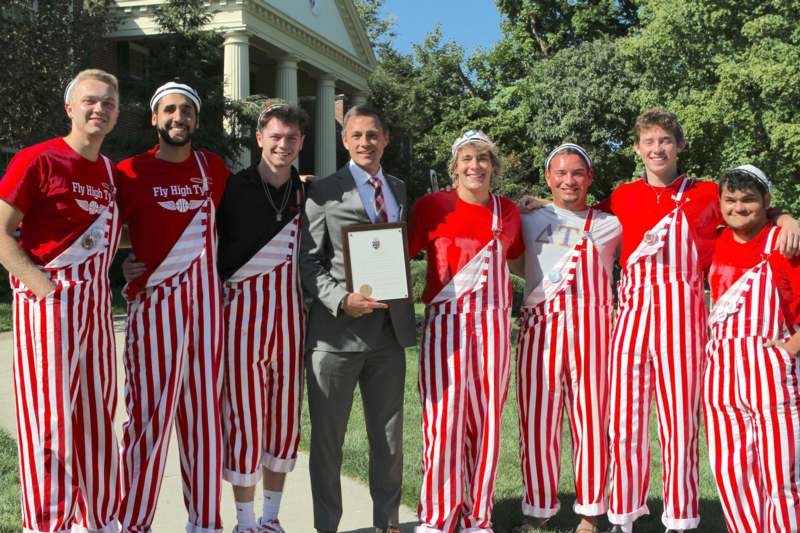
Students, alumni and guests gathered on Saturday, Sept. 24, 2022, to celebrate Delta Tau Delta’s 150th Anniversary on campus. The celebration aligned with Homecoming 2022 and involved a formal dedication, tailgate and post-game celebration at the chapter house with live music and food. The dedication ceremony featured members of the undergraduate chapter, college administration, national fraternity leadership, and alumni volunteers. Originally installed in 1872, more than 1700 Wabash men have become members of the Delta Tau Delta.

Students, alumni and guests gathered on Saturday, Sept. 24, 2022, to celebrate Delta Tau Delta’s 150th Anniversary on campus. The celebration aligned with Homecoming 2022 and involved a formal dedication, tailgate and post-game celebration at the chapter house with live music and food. The dedication ceremony featured members of the undergraduate chapter, college administration, national fraternity leadership, and alumni volunteers. Originally installed in 1872, more than 1700 Wabash men have become members of the Delta Tau Delta.
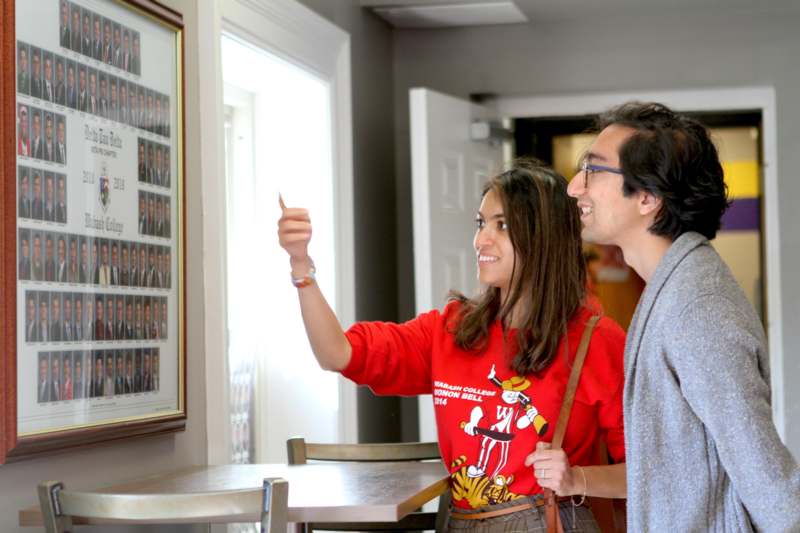
Students, alumni and guests gathered on Saturday, Sept. 24, 2022, to celebrate Delta Tau Delta’s 150th Anniversary on campus. The celebration aligned with Homecoming 2022 and involved a formal dedication, tailgate and post-game celebration at the chapter house with live music and food. The dedication ceremony featured members of the undergraduate chapter, college administration, national fraternity leadership, and alumni volunteers. Originally installed in 1872, more than 1700 Wabash men have become members of the Delta Tau Delta.
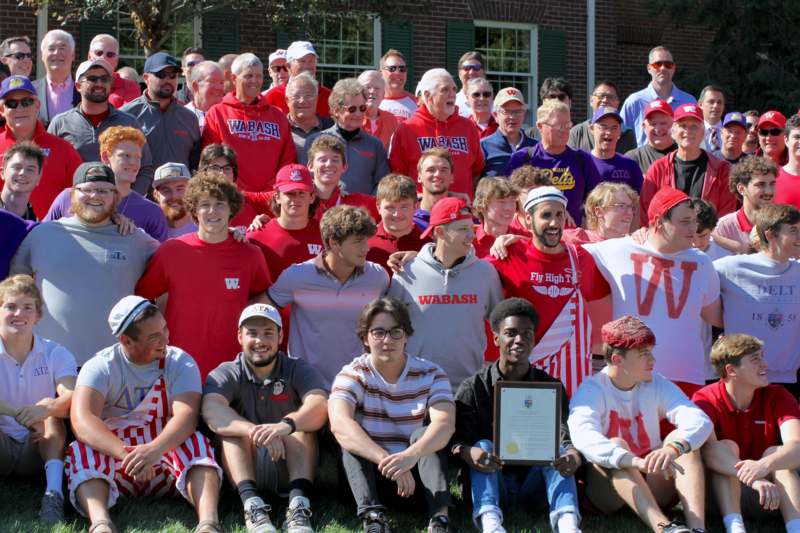
Students, alumni and guests gathered on Saturday, Sept. 24, 2022, to celebrate Delta Tau Delta’s 150th Anniversary on campus. The celebration aligned with Homecoming 2022 and involved a formal dedication, tailgate and post-game celebration at the chapter house with live music and food. The dedication ceremony featured members of the undergraduate chapter, college administration, national fraternity leadership, and alumni volunteers. Originally installed in 1872, more than 1700 Wabash men have become members of the Delta Tau Delta.
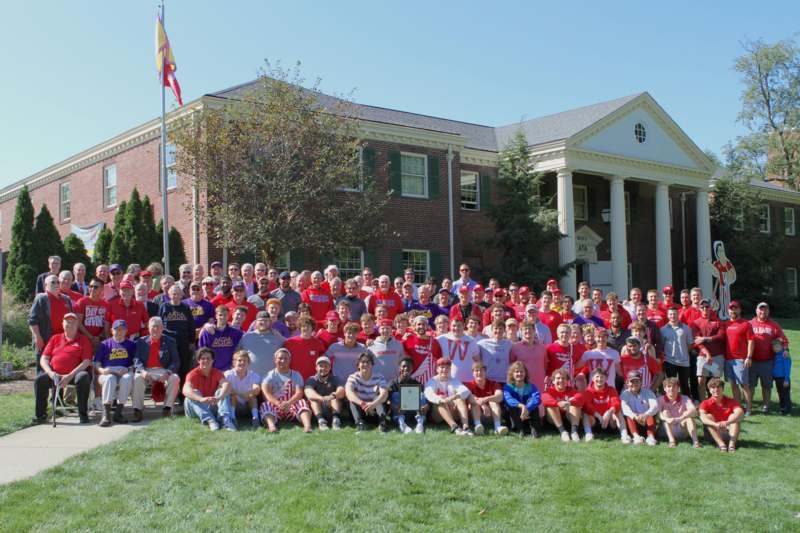
Students, alumni and guests gathered on Saturday, Sept. 24, 2022, to celebrate Delta Tau Delta’s 150th Anniversary on campus. The celebration aligned with Homecoming 2022 and involved a formal dedication, tailgate and post-game celebration at the chapter house with live music and food. The dedication ceremony featured members of the undergraduate chapter, college administration, national fraternity leadership, and alumni volunteers. Originally installed in 1872, more than 1700 Wabash men have become members of the Delta Tau Delta.

